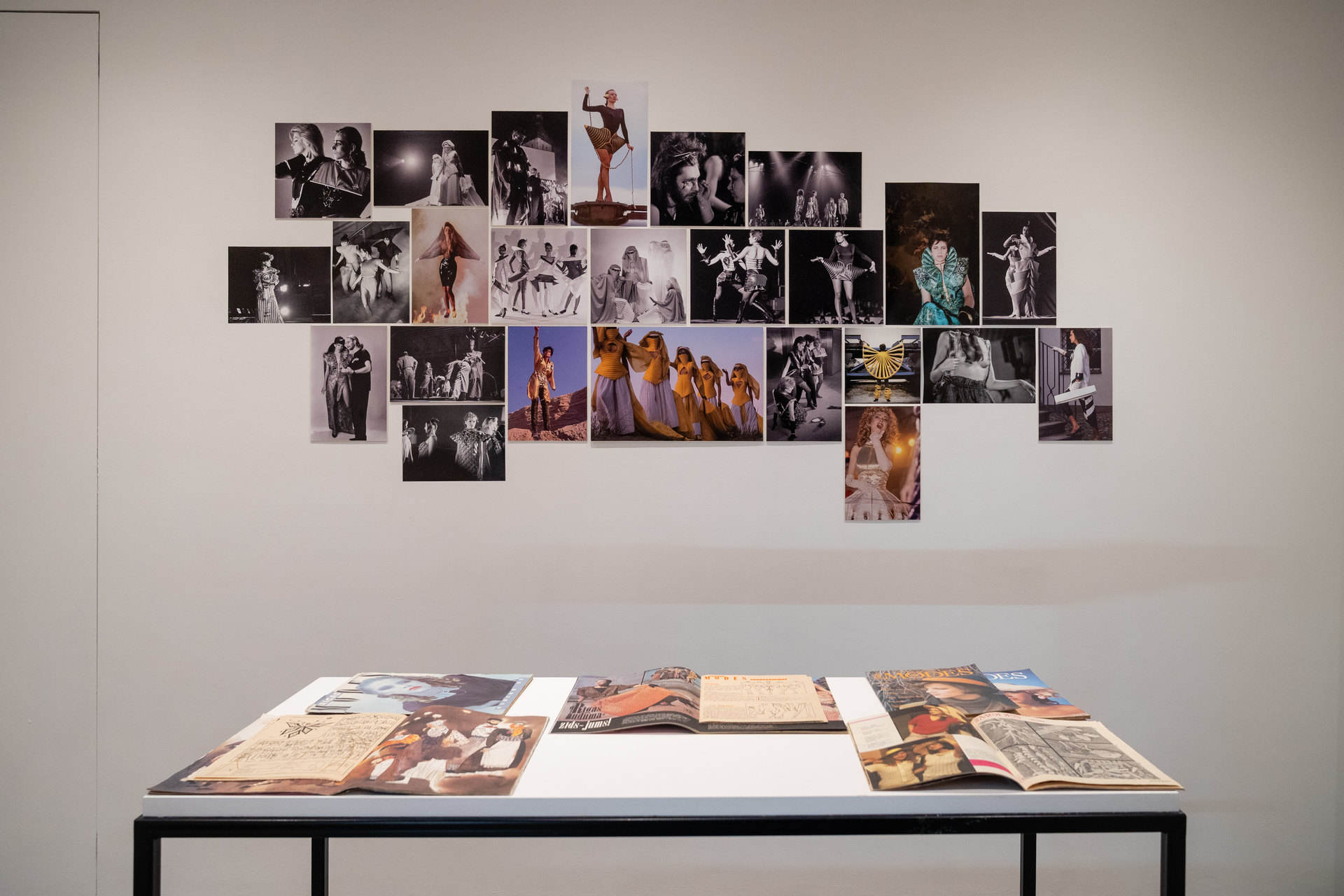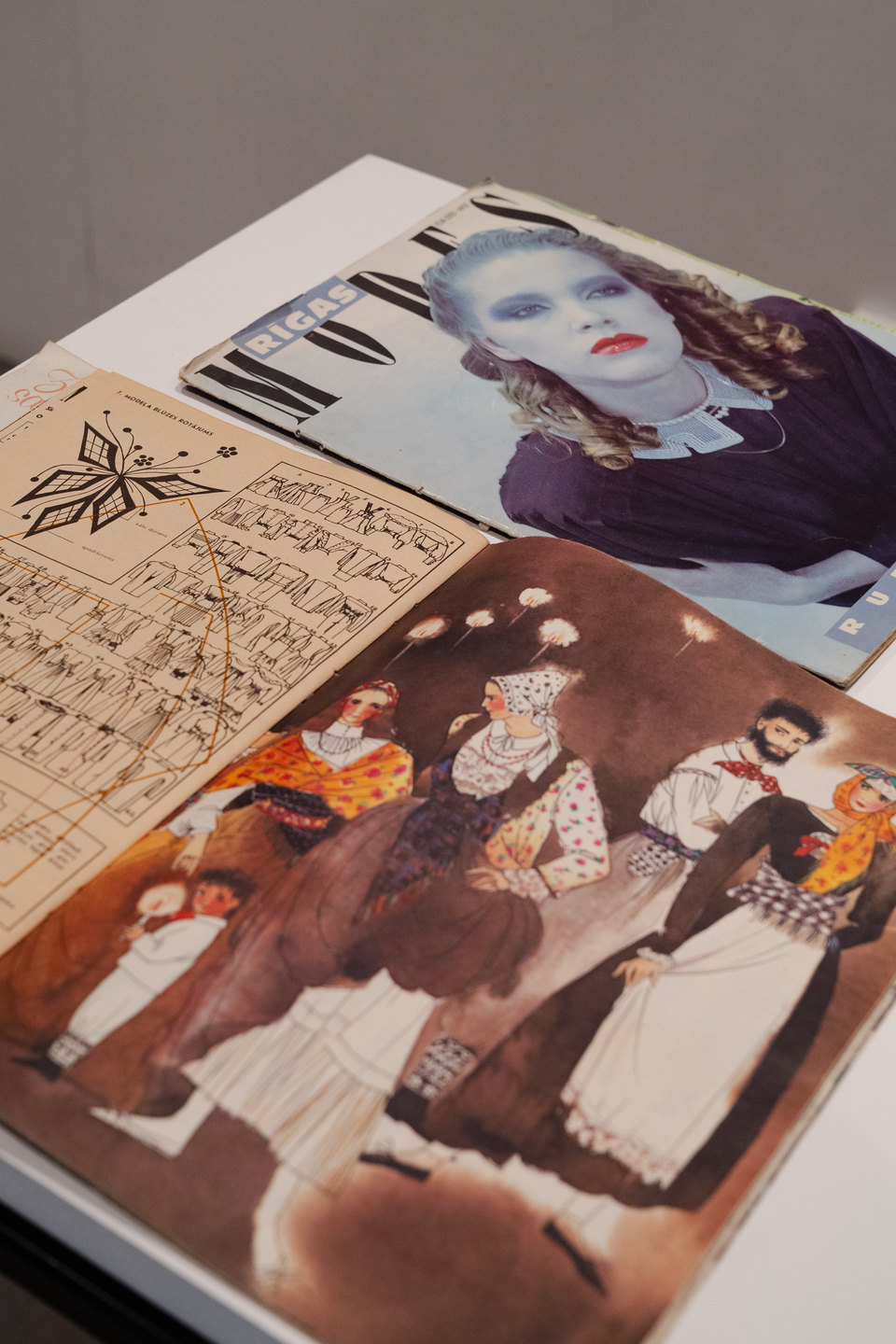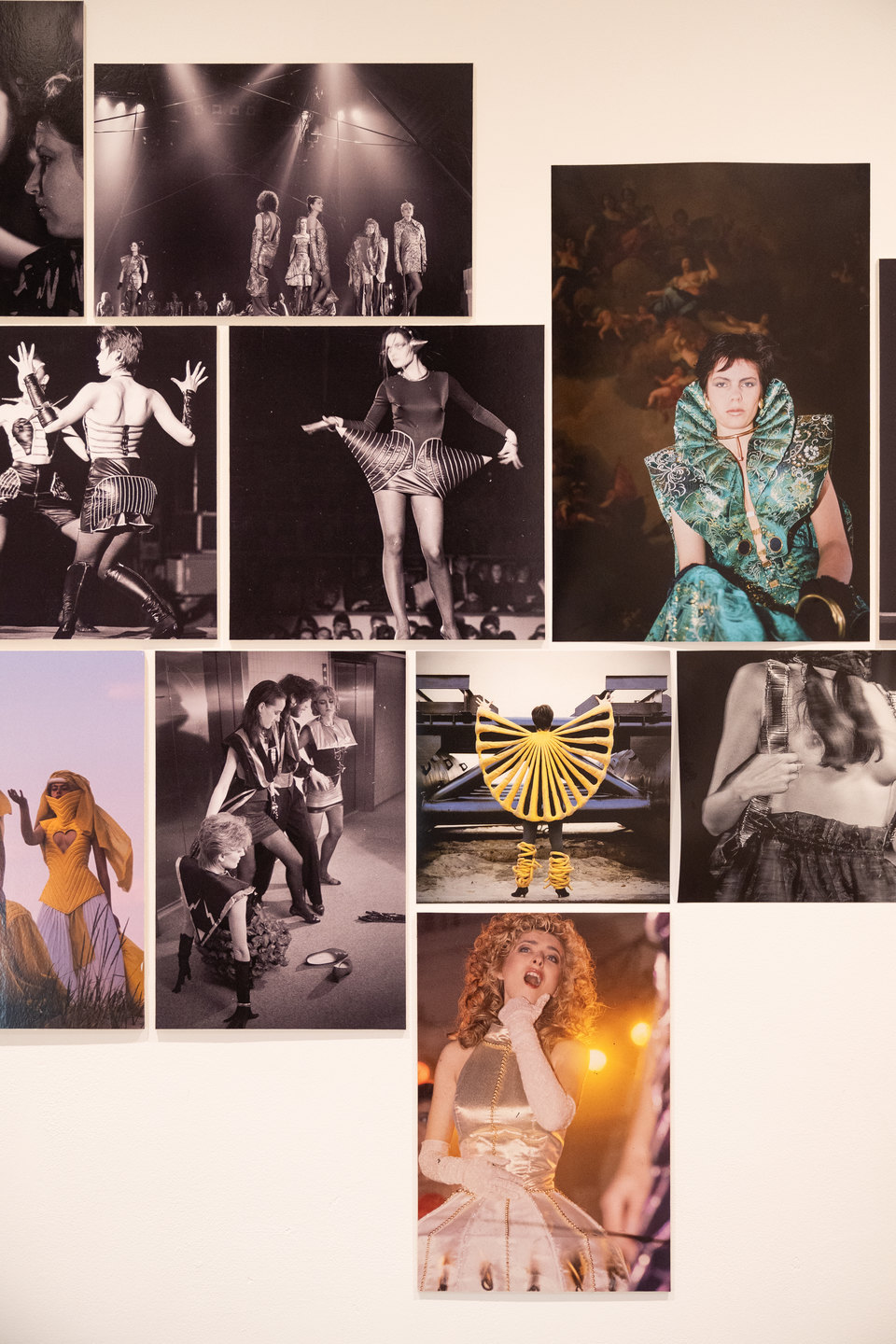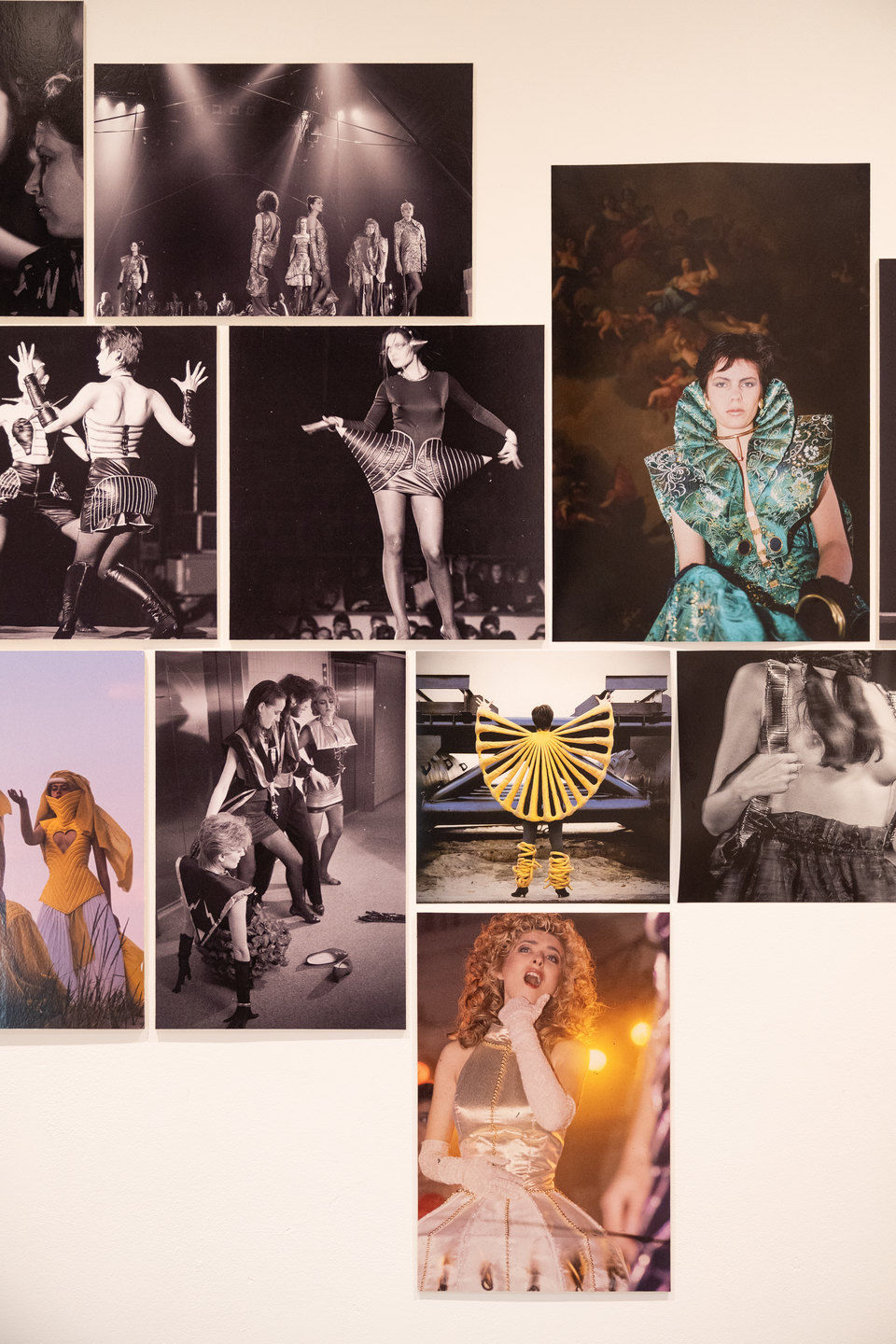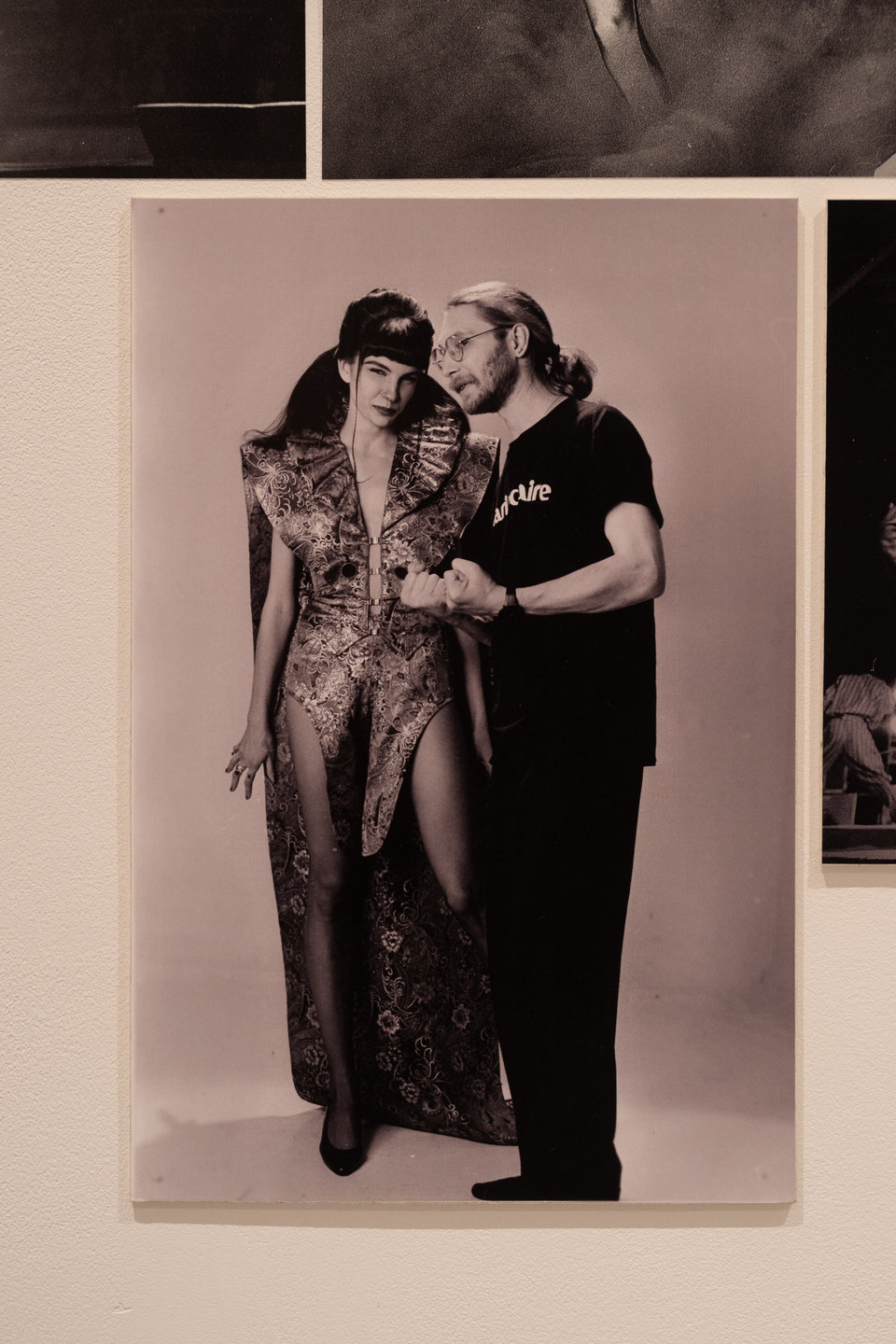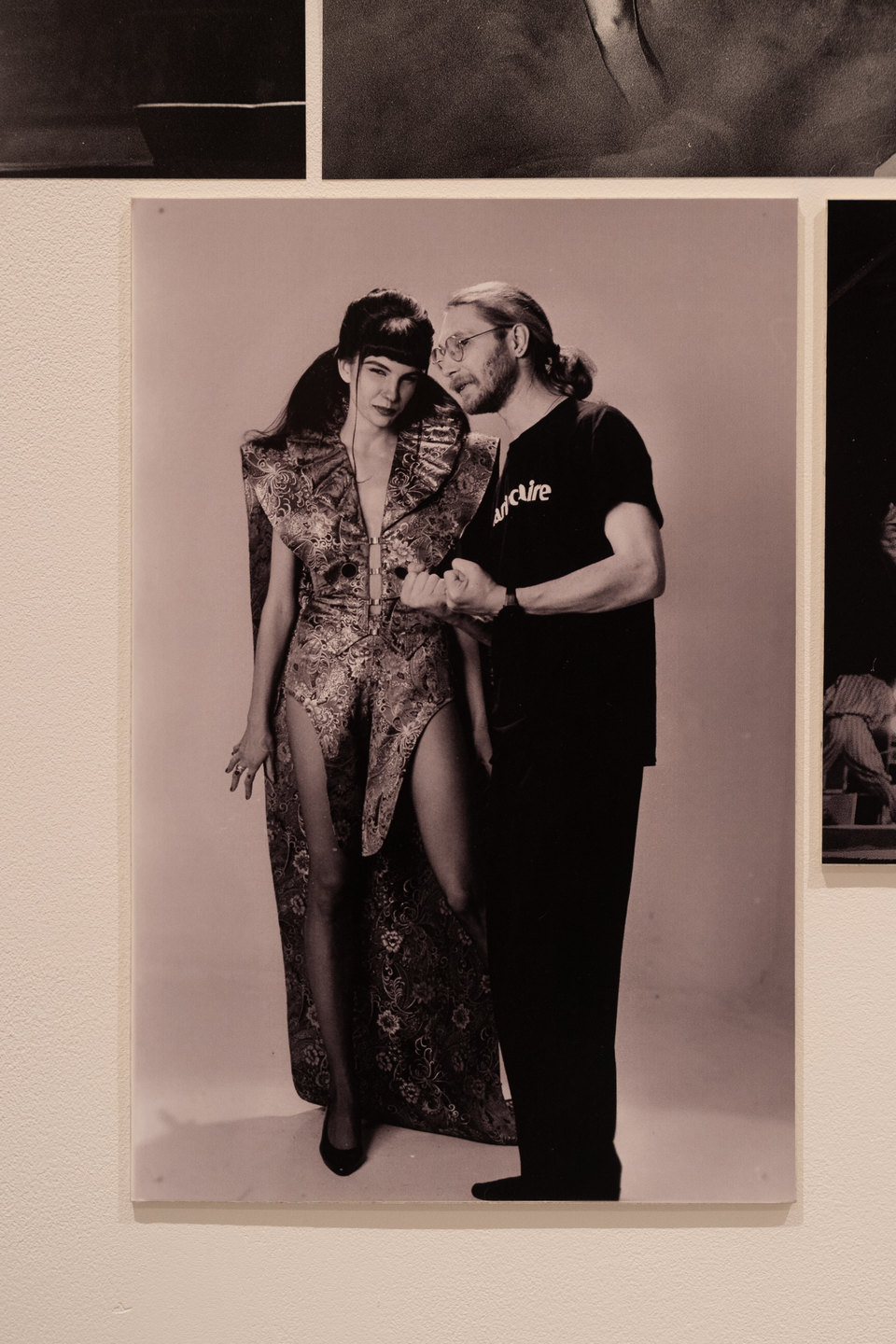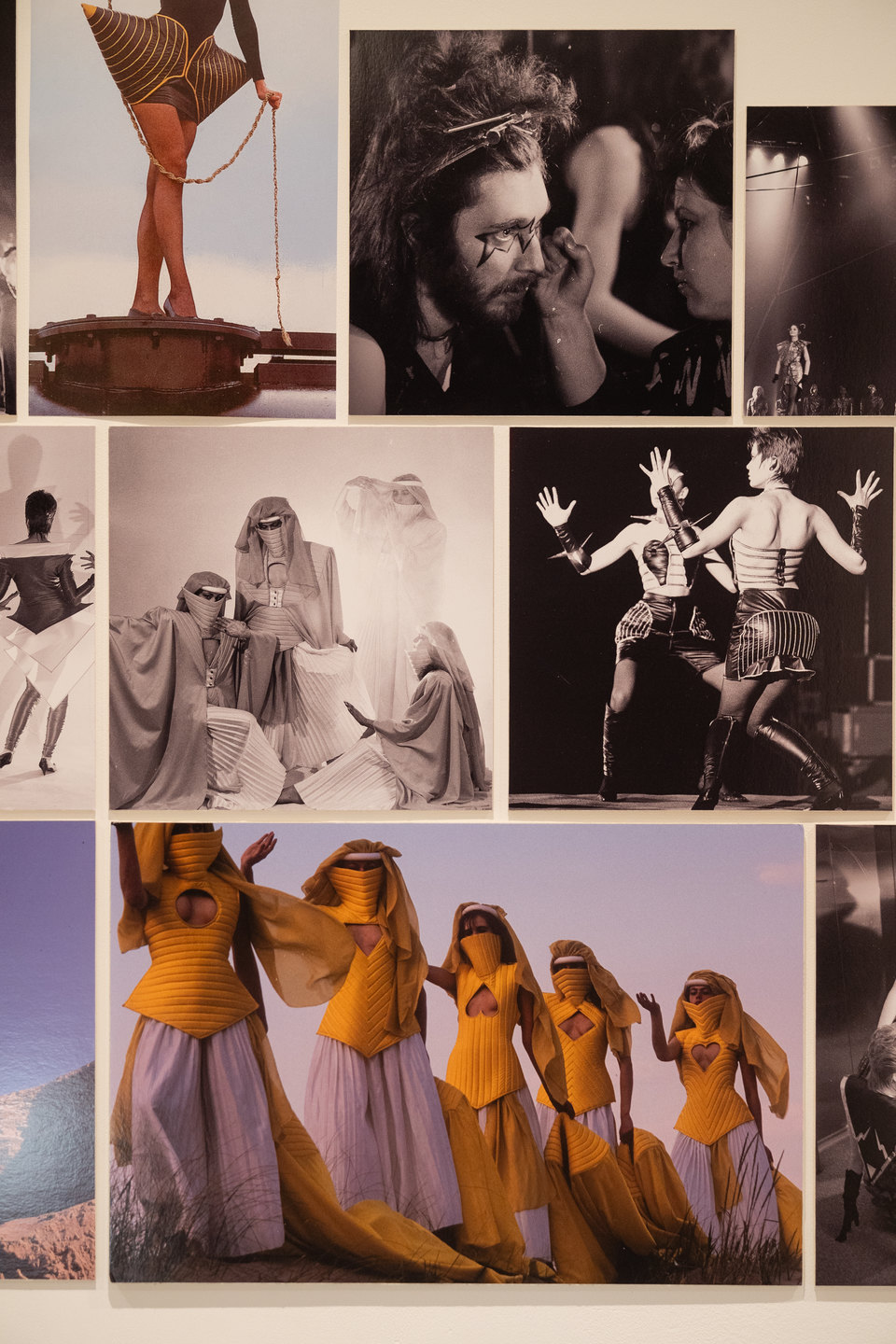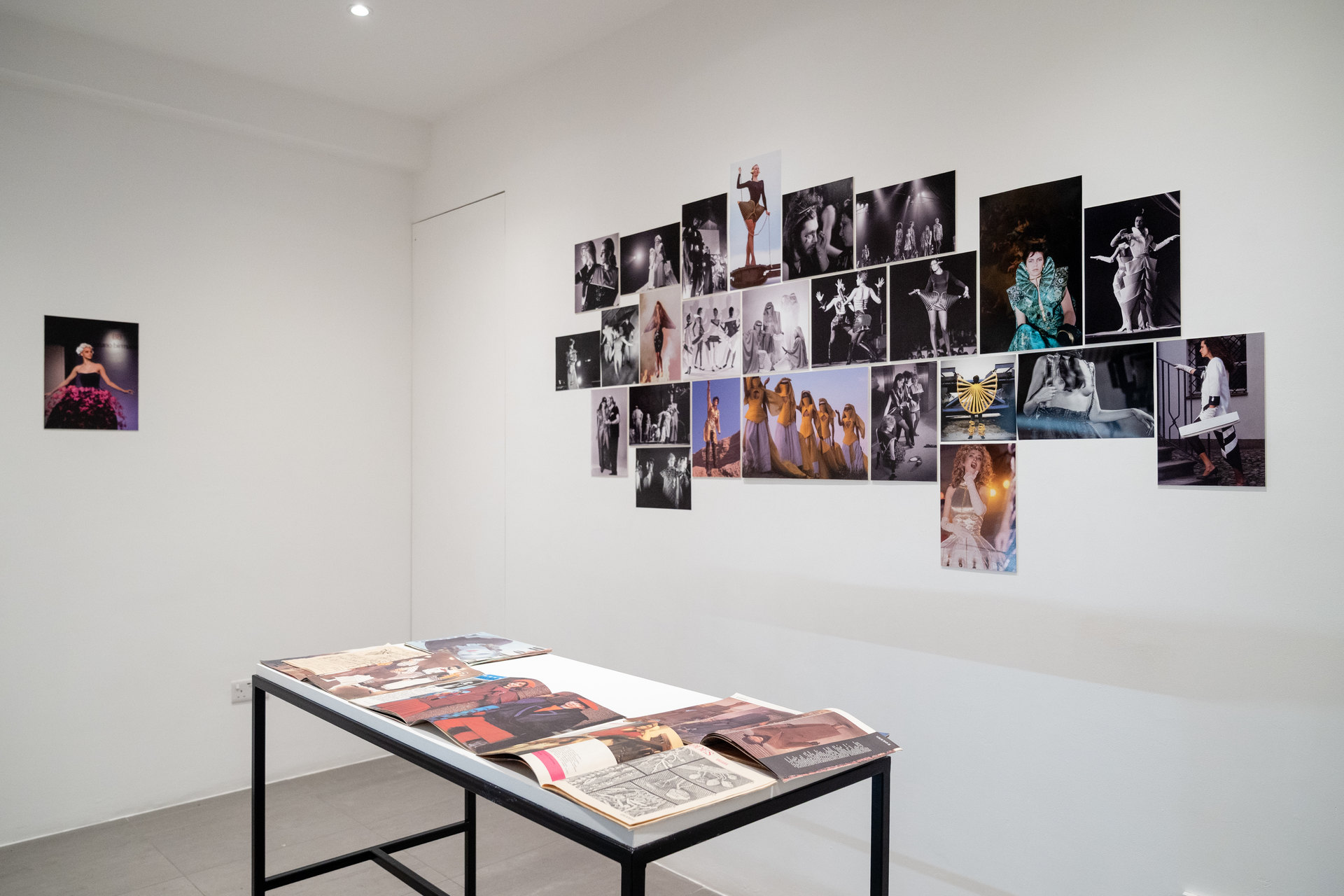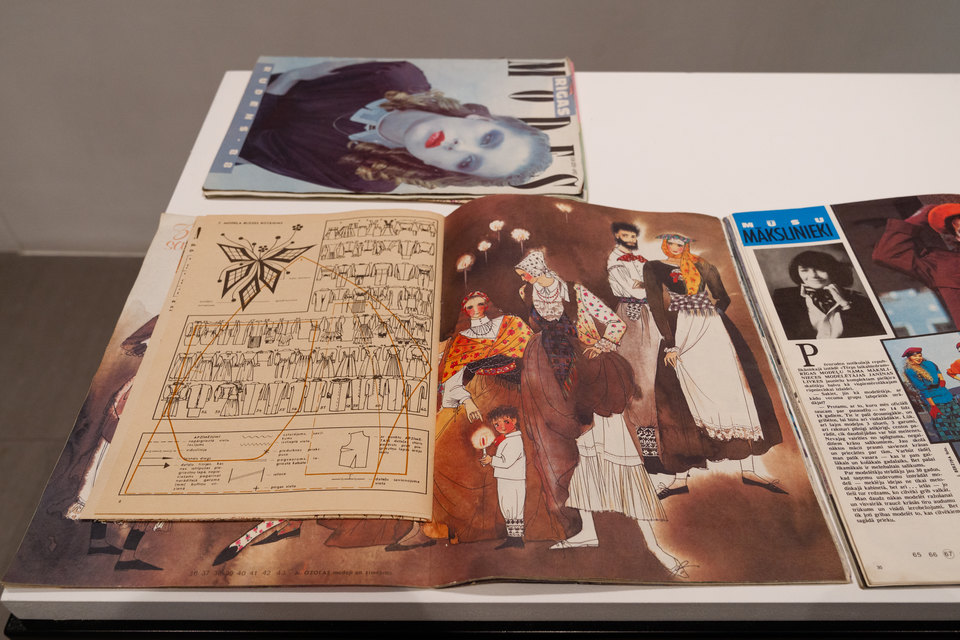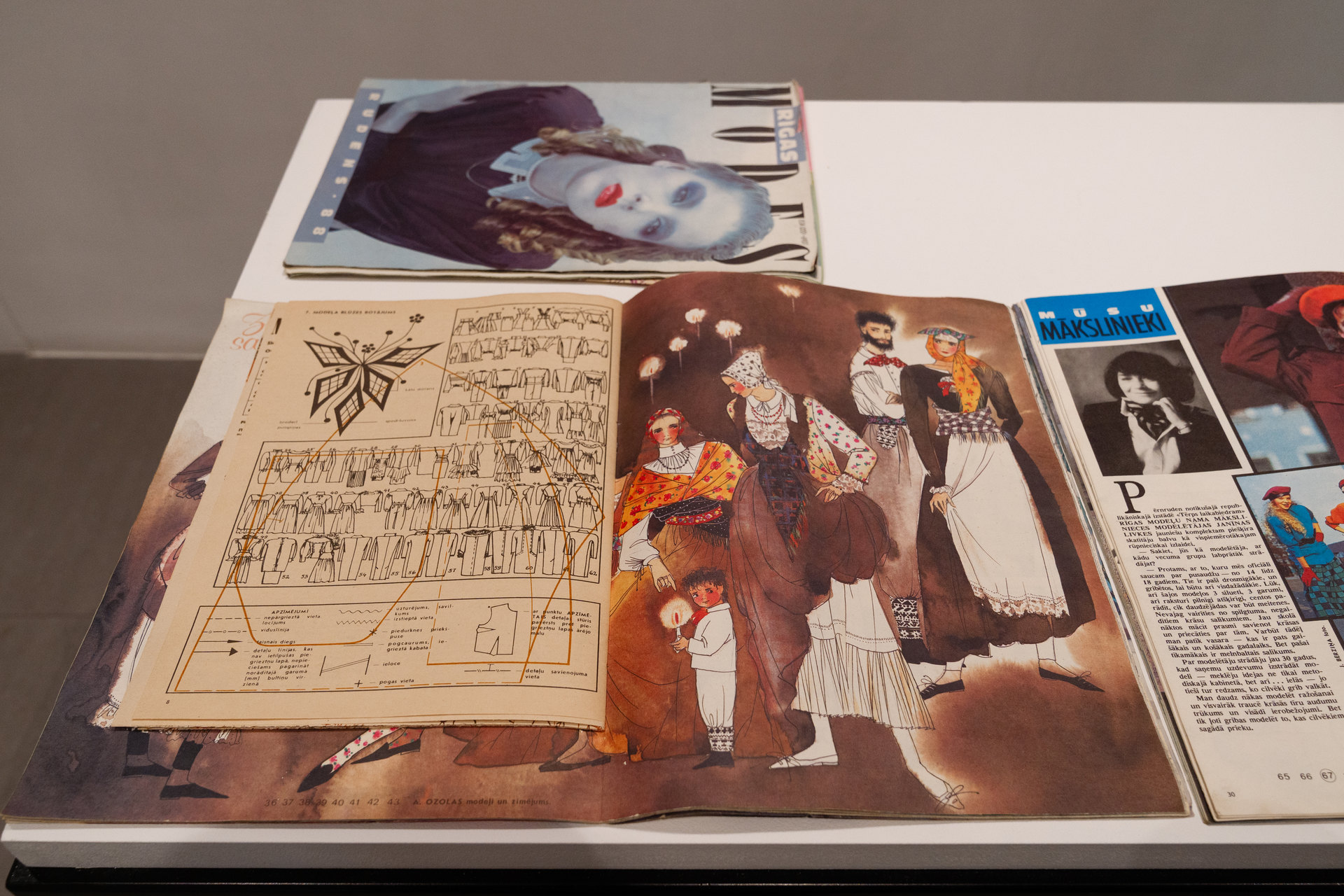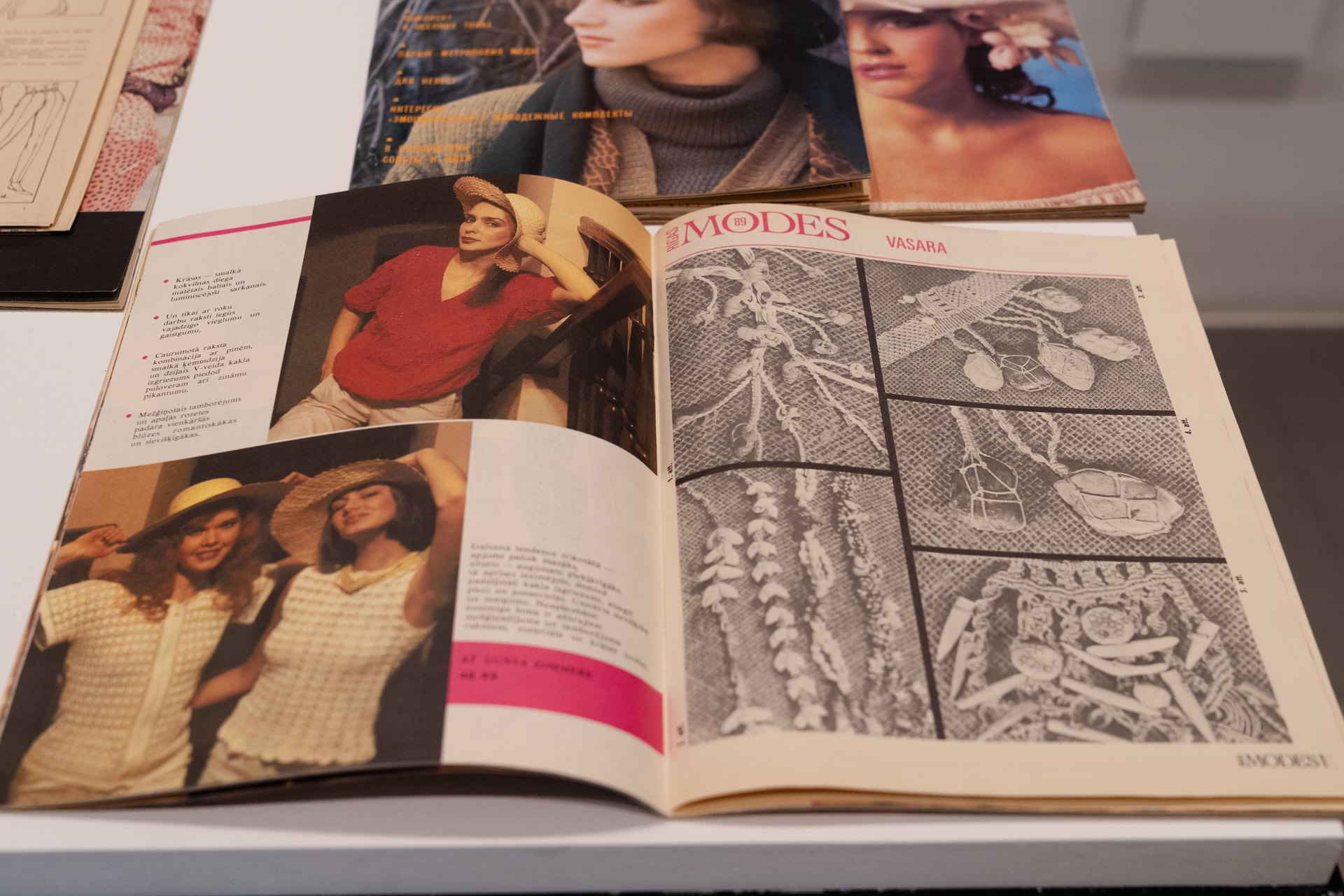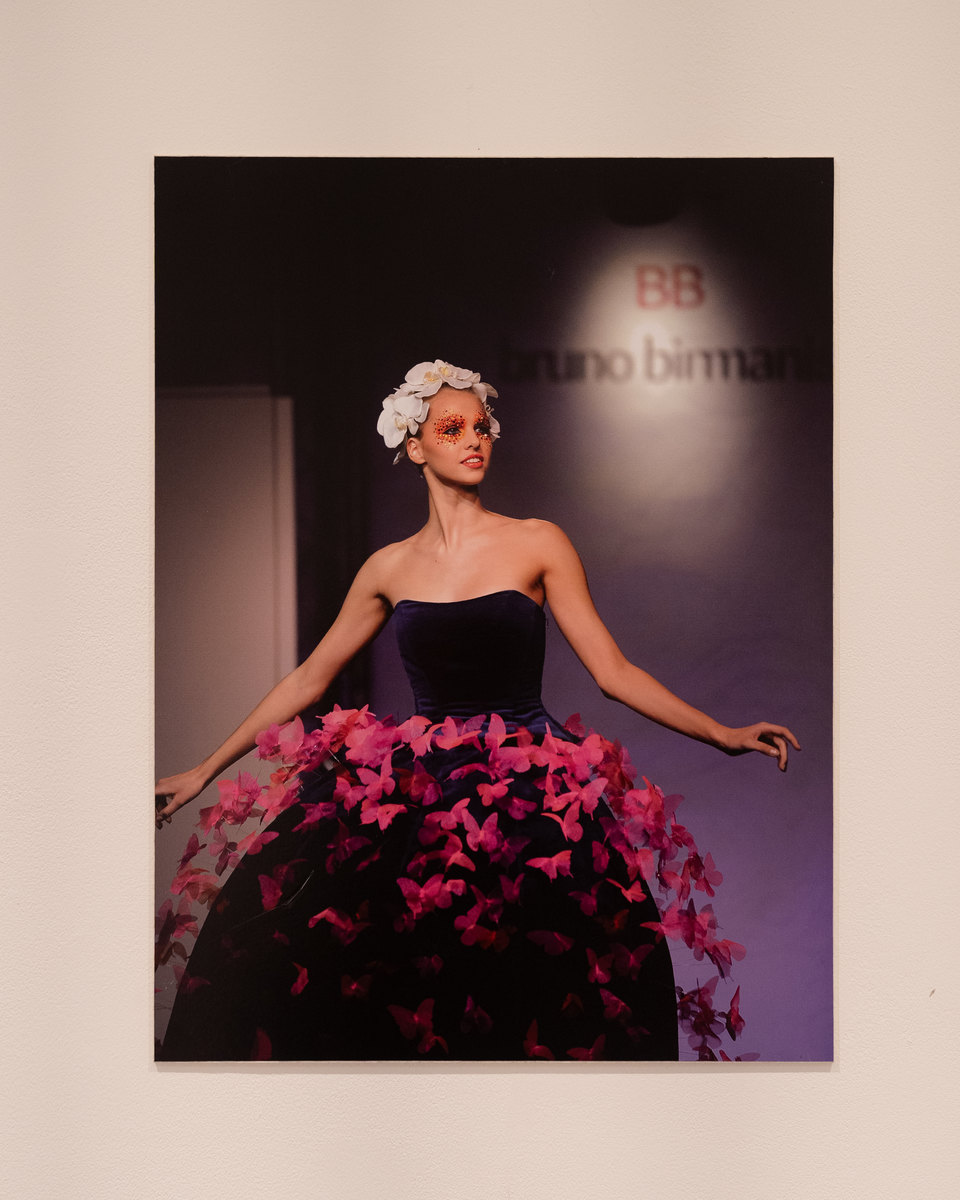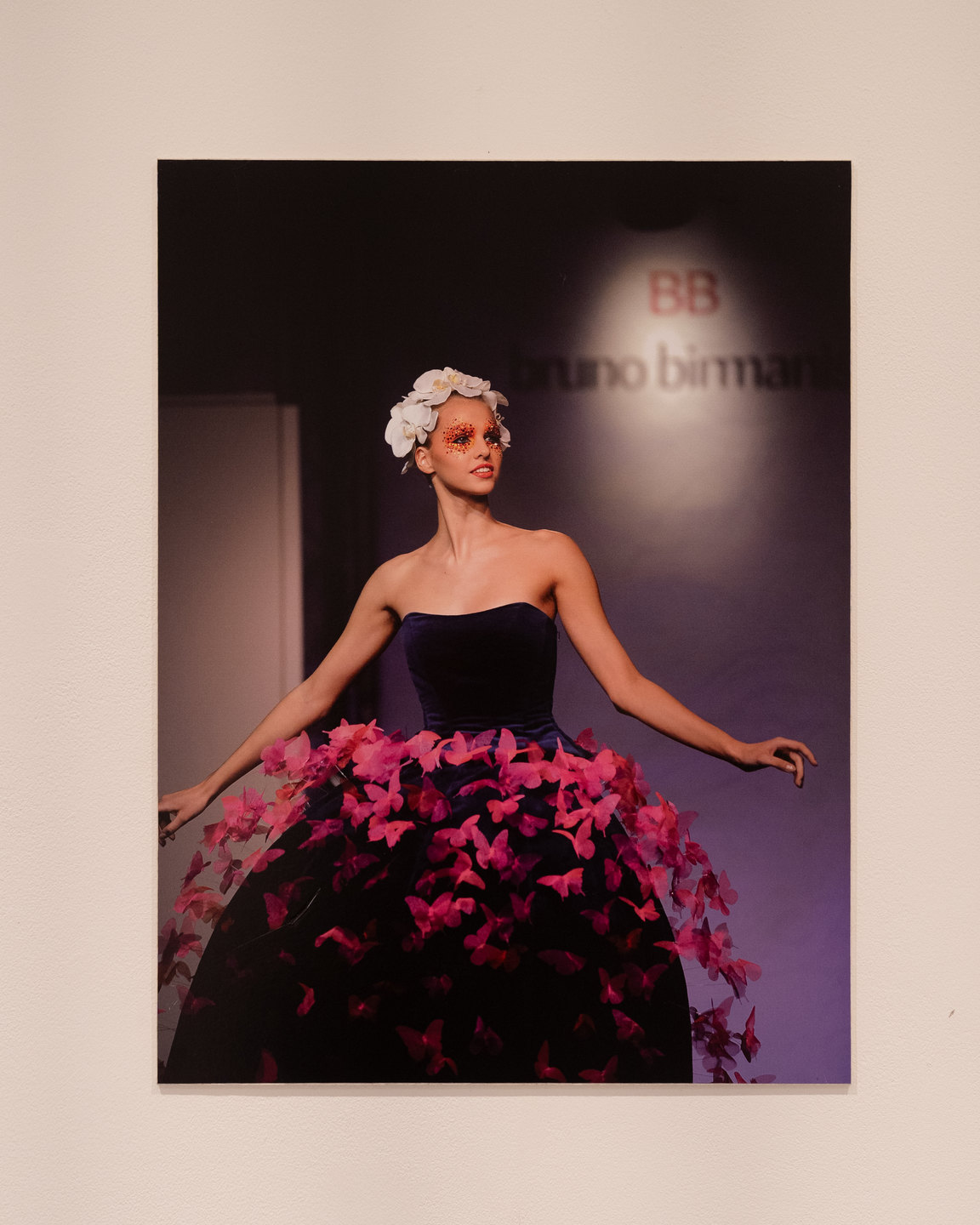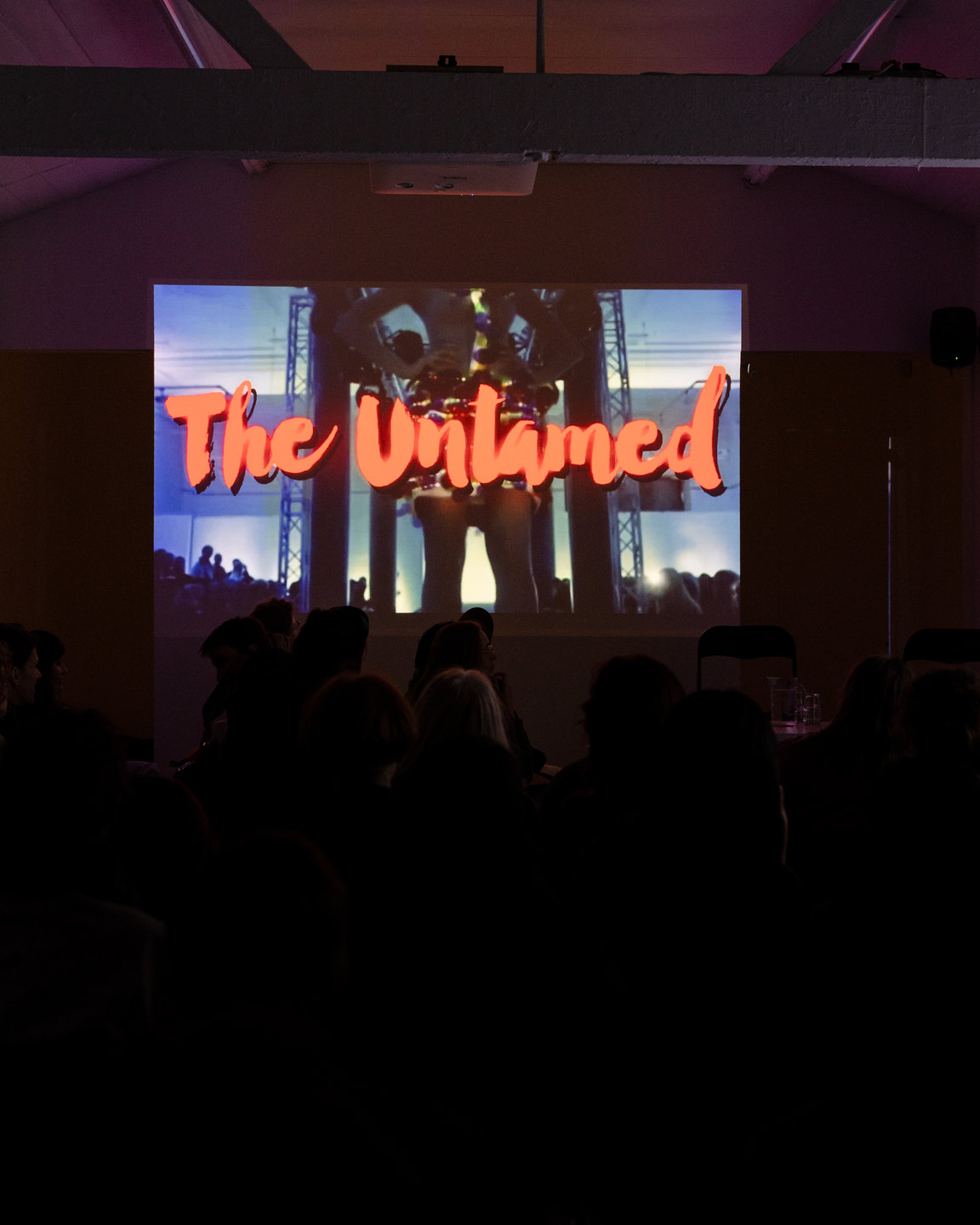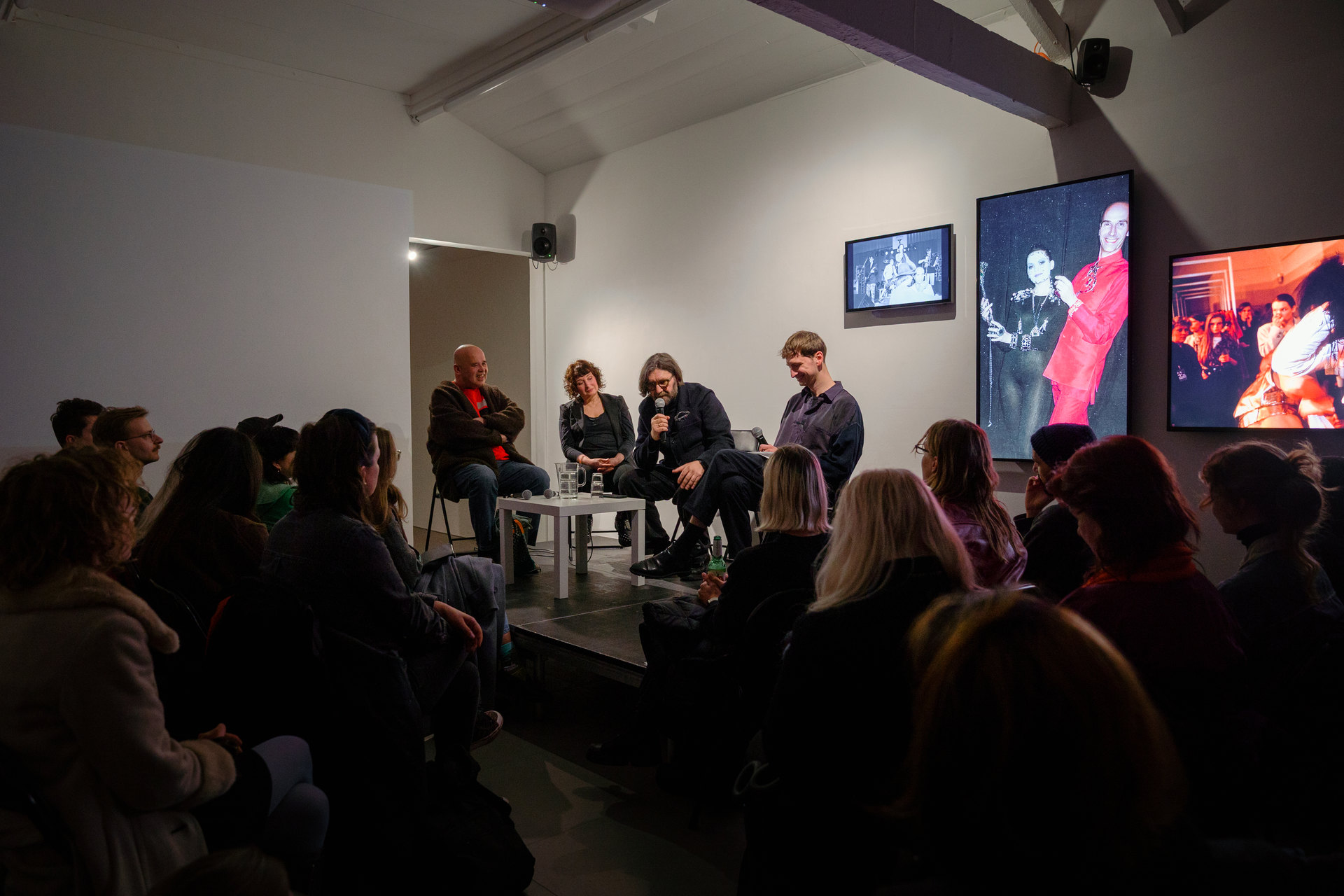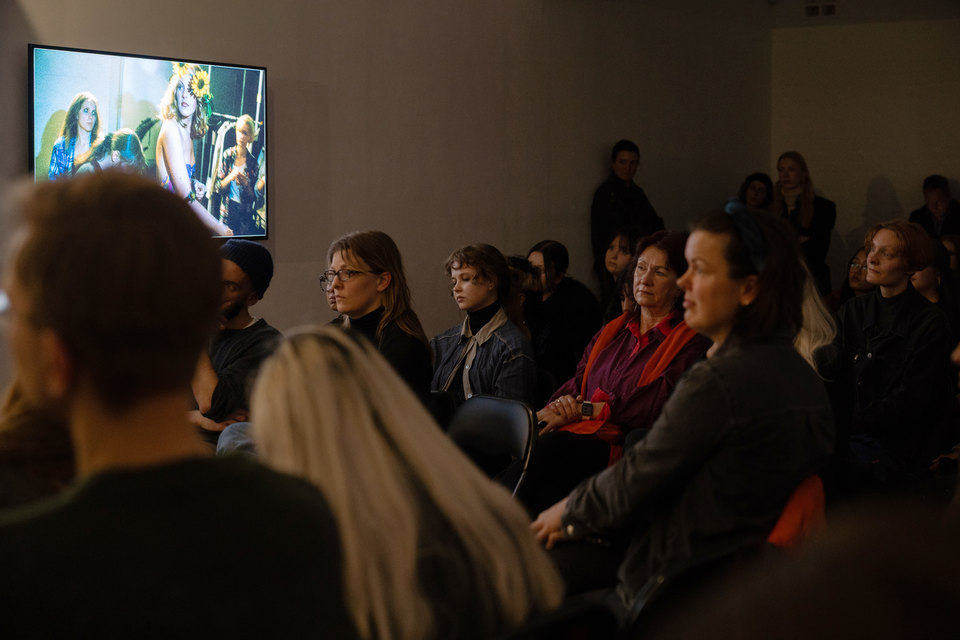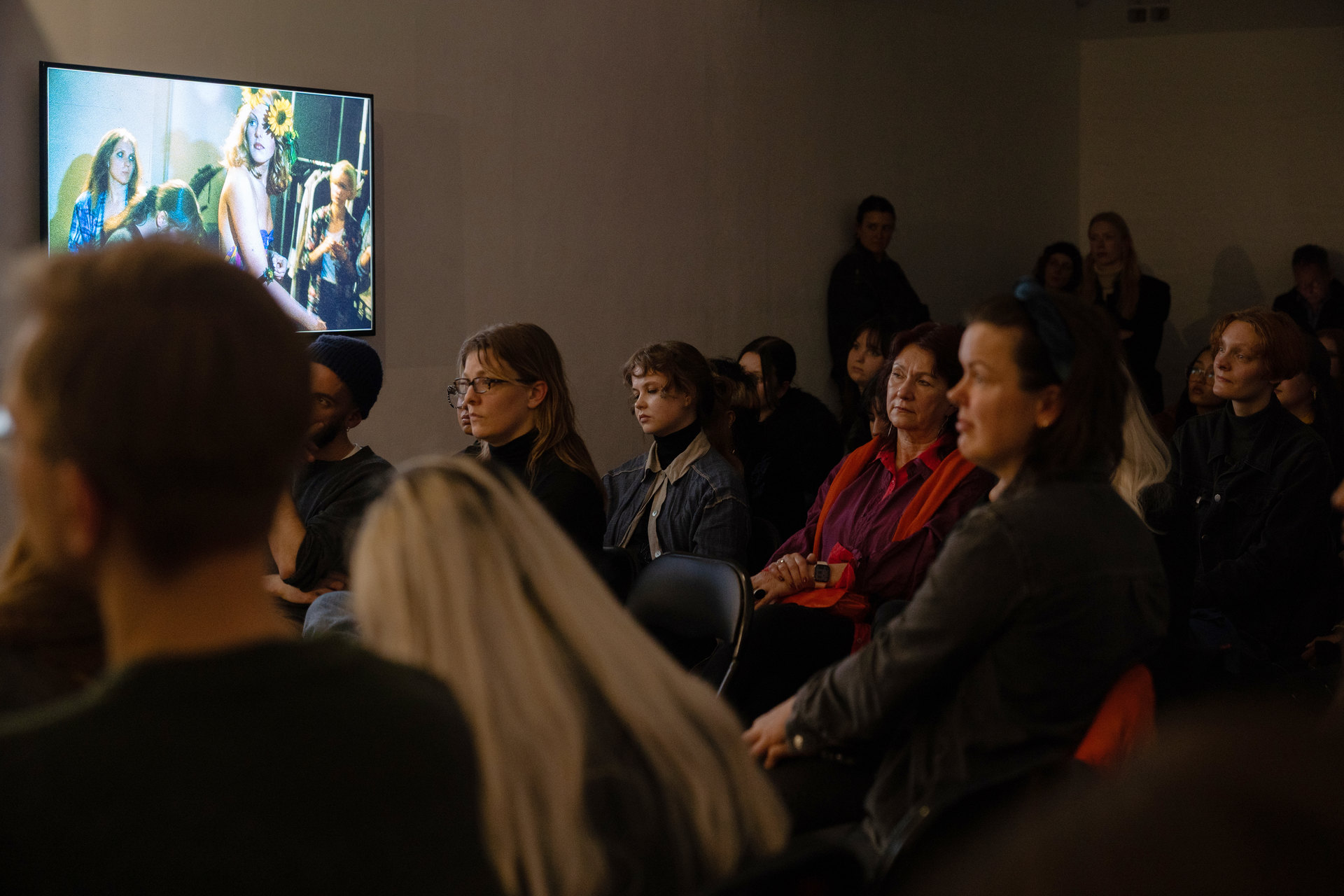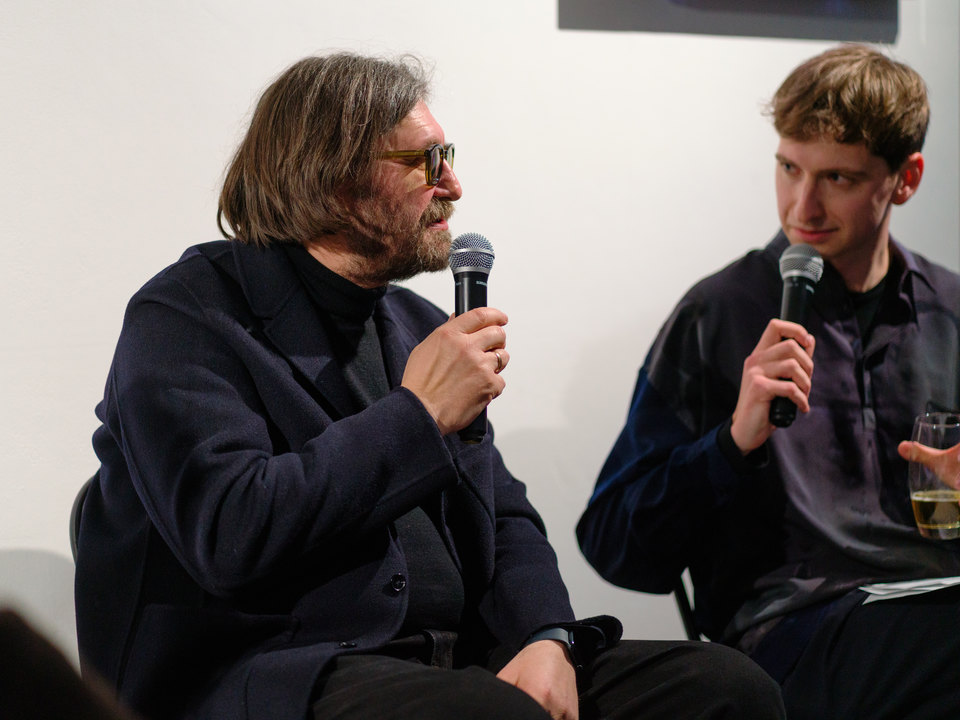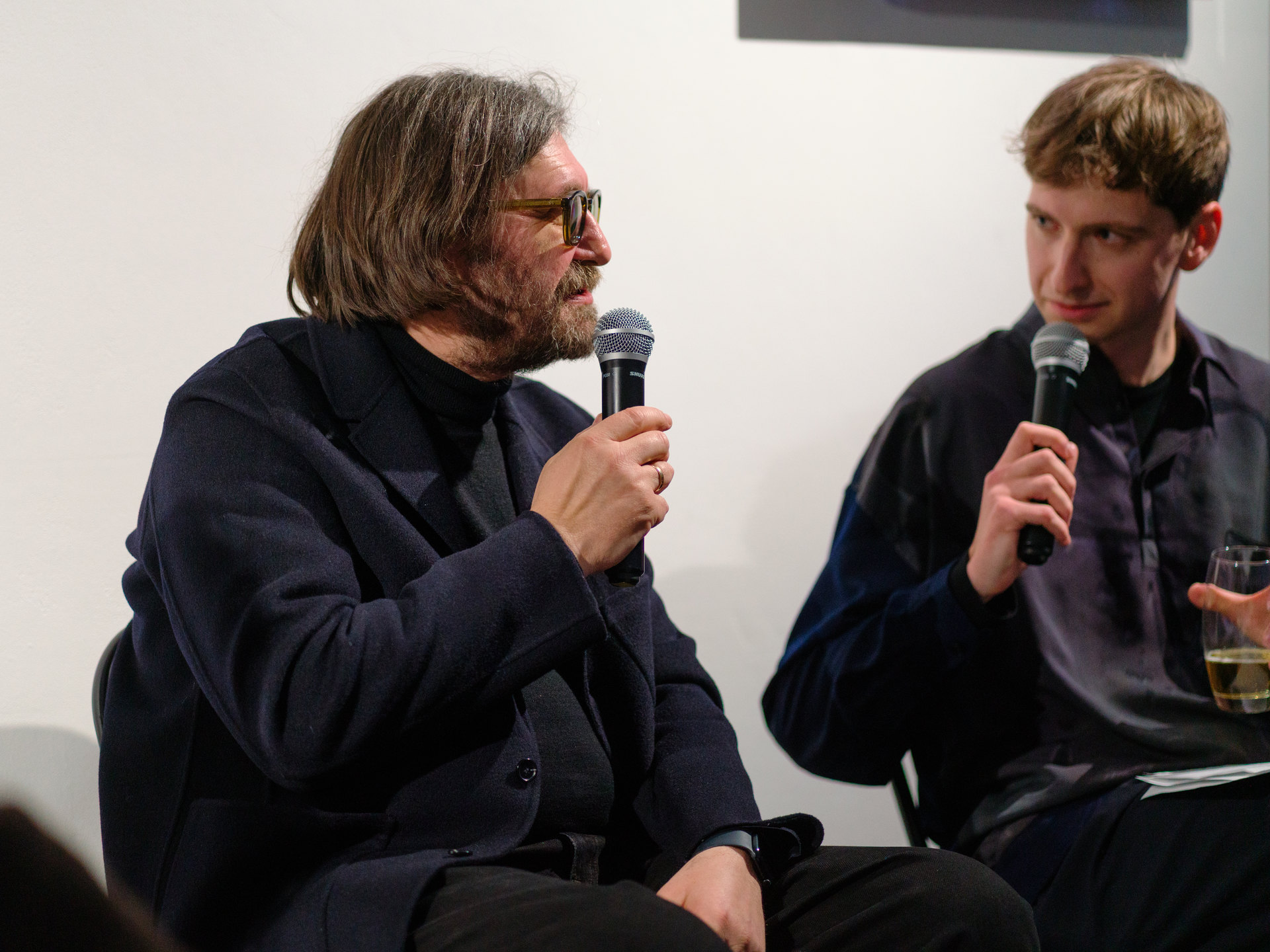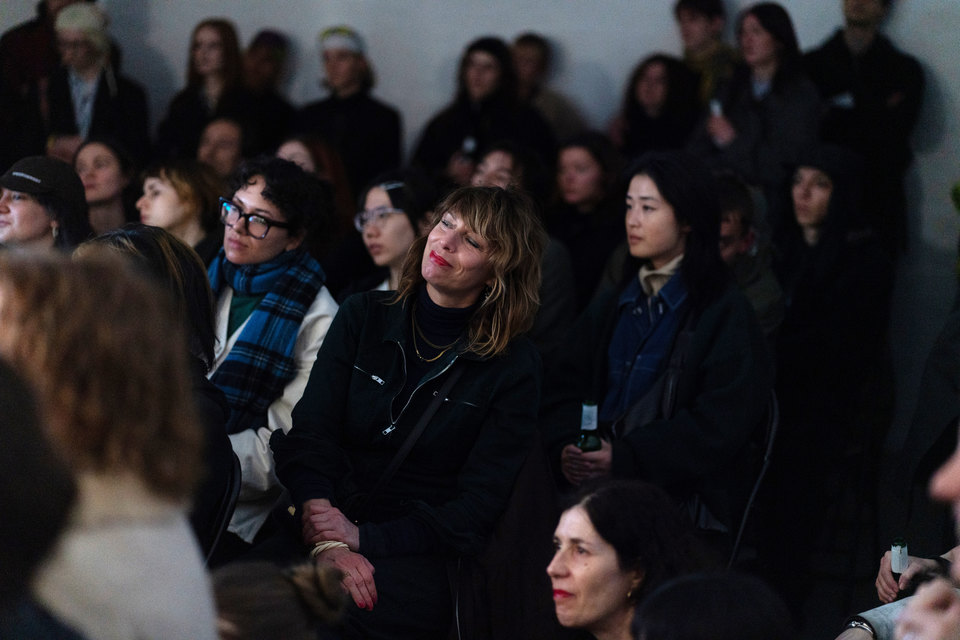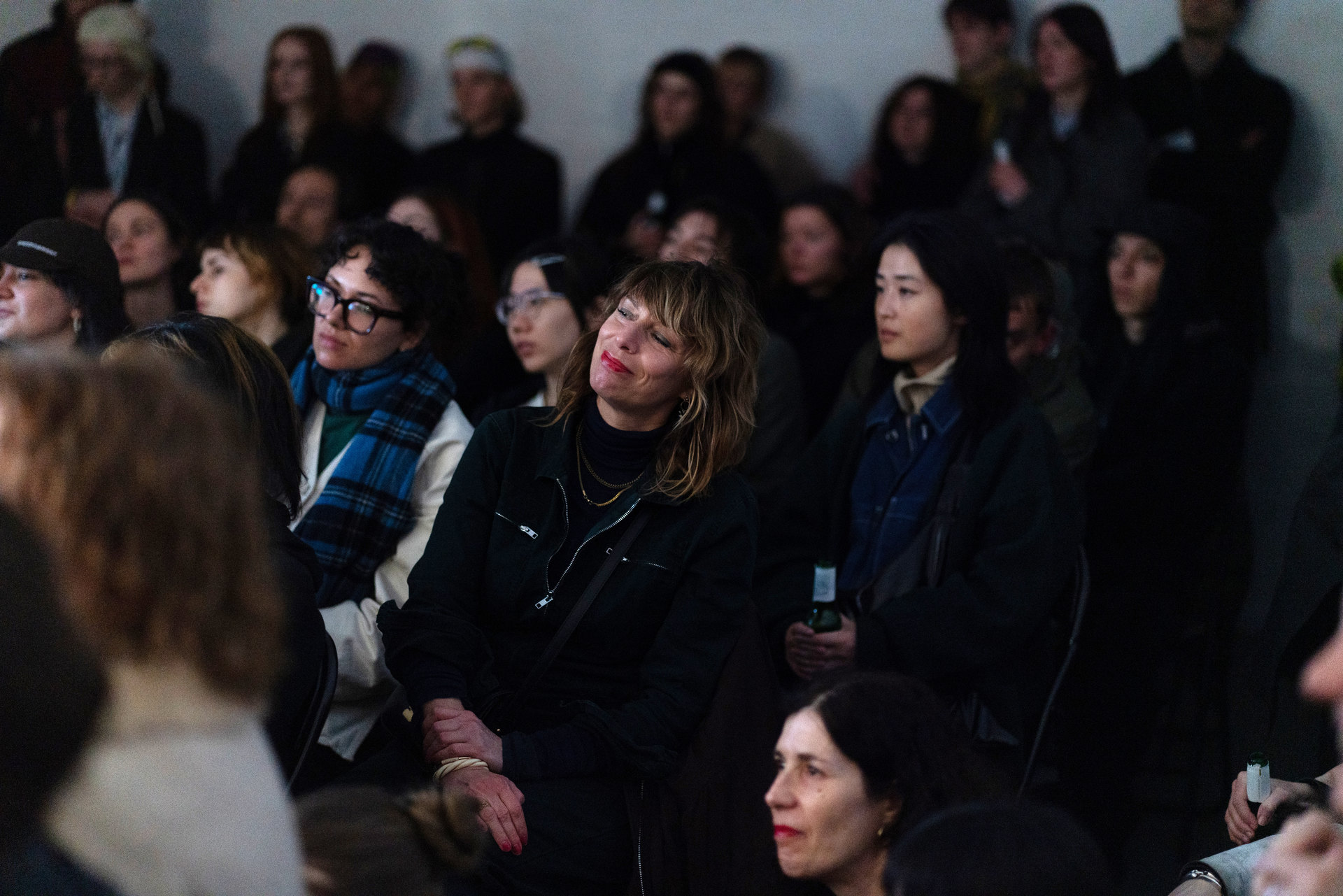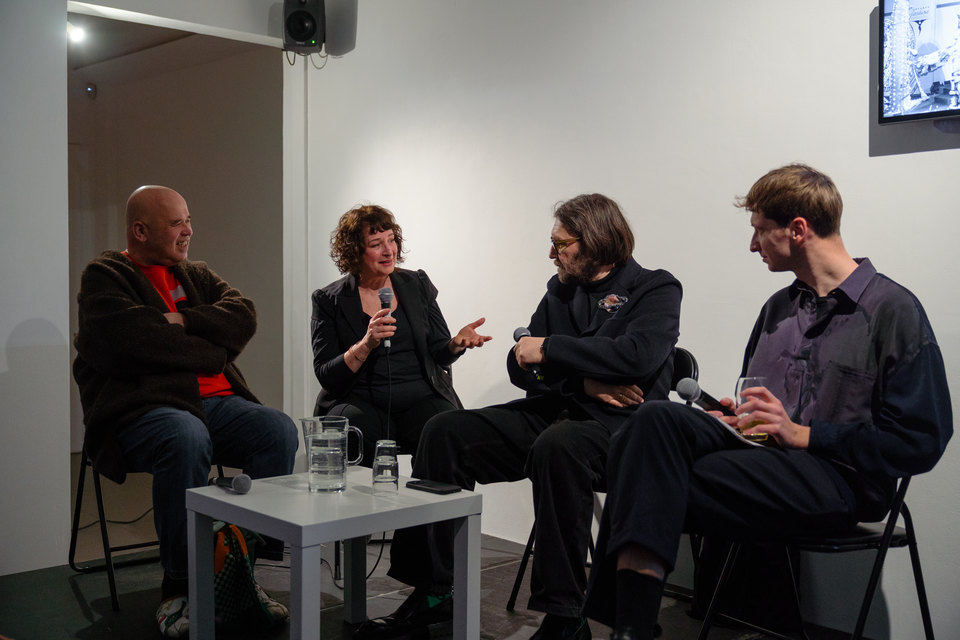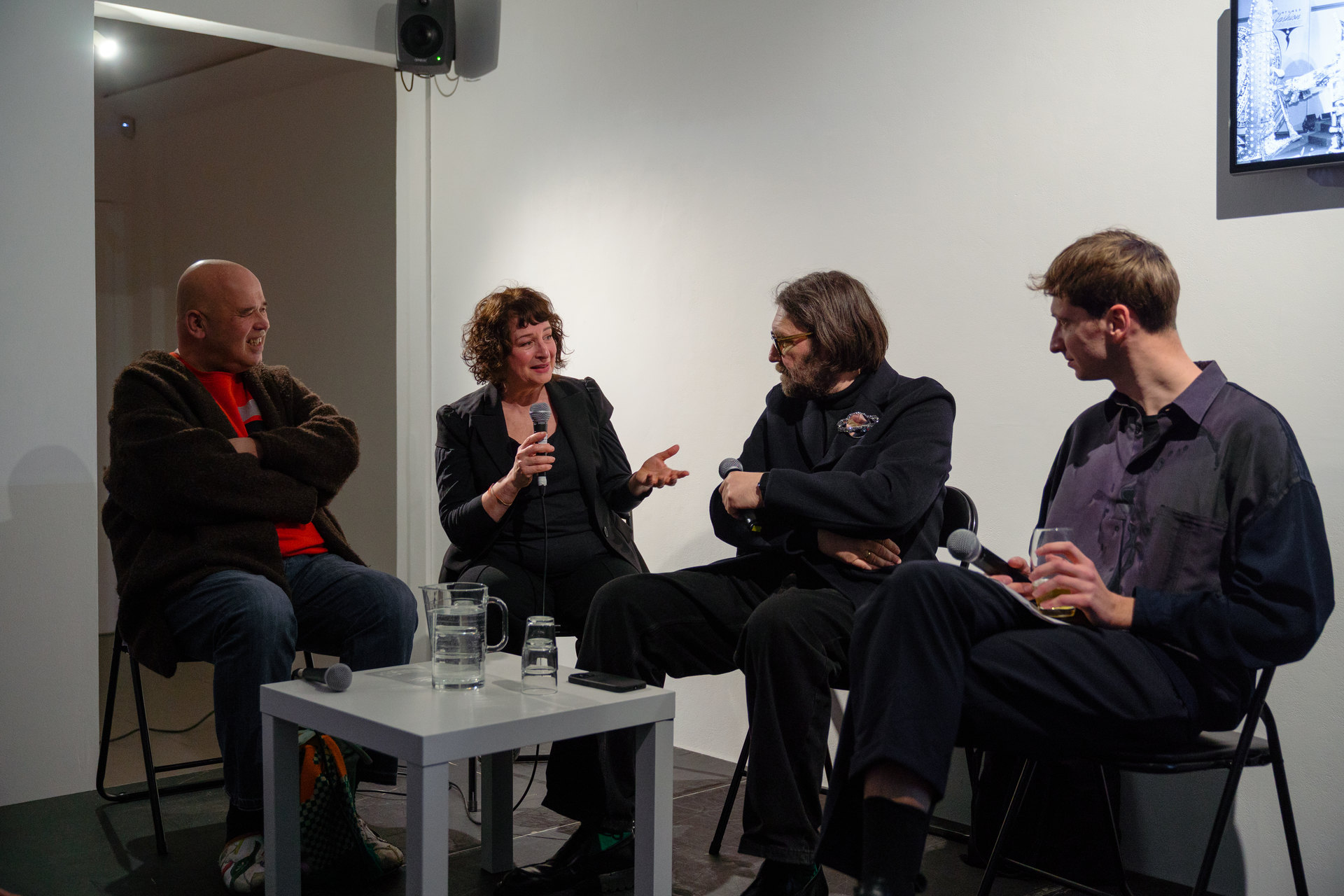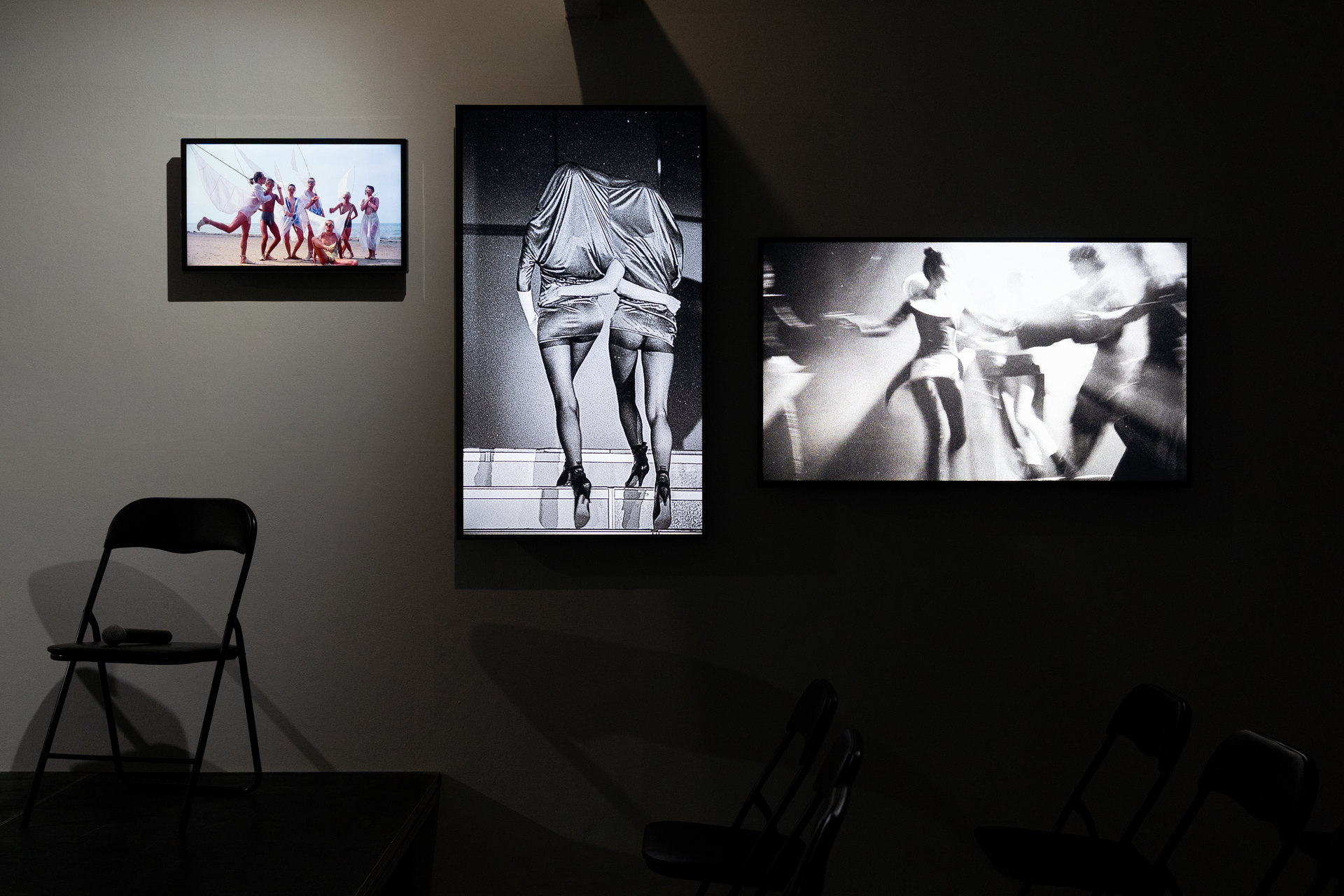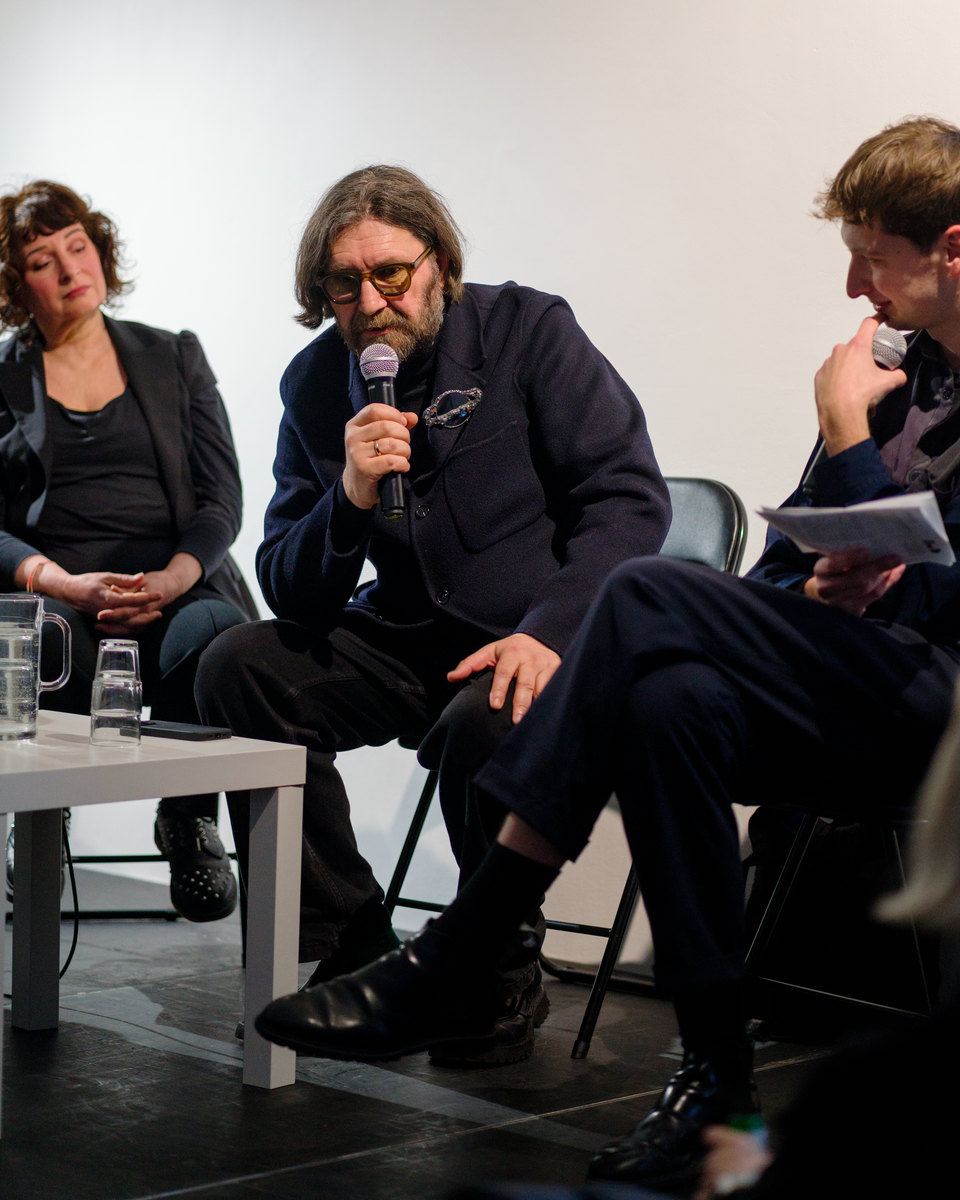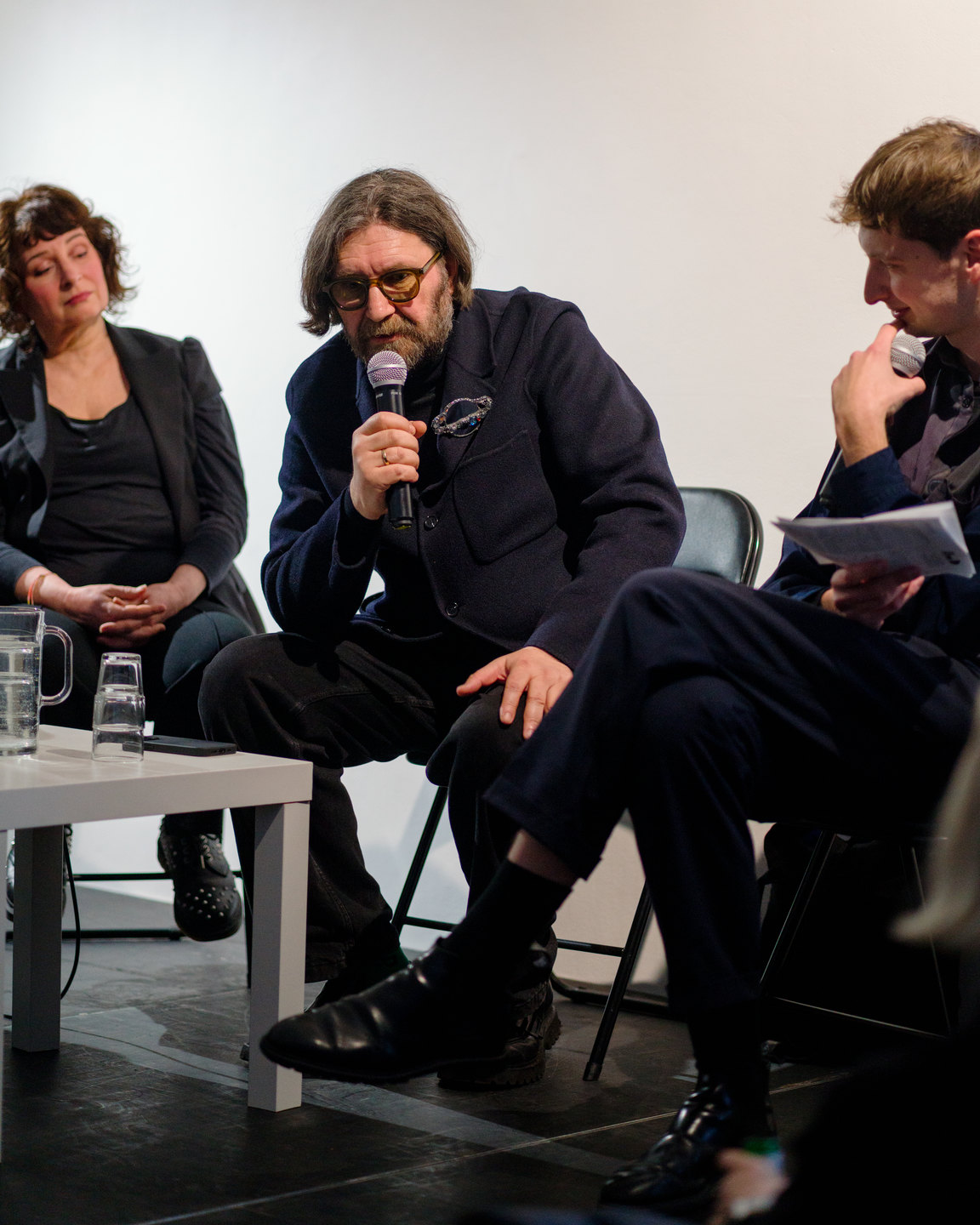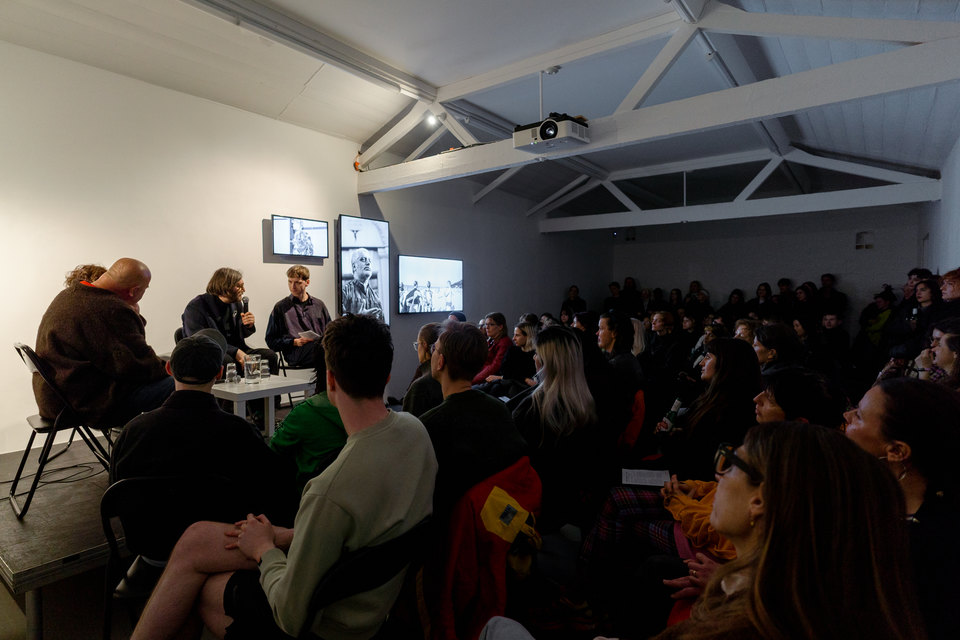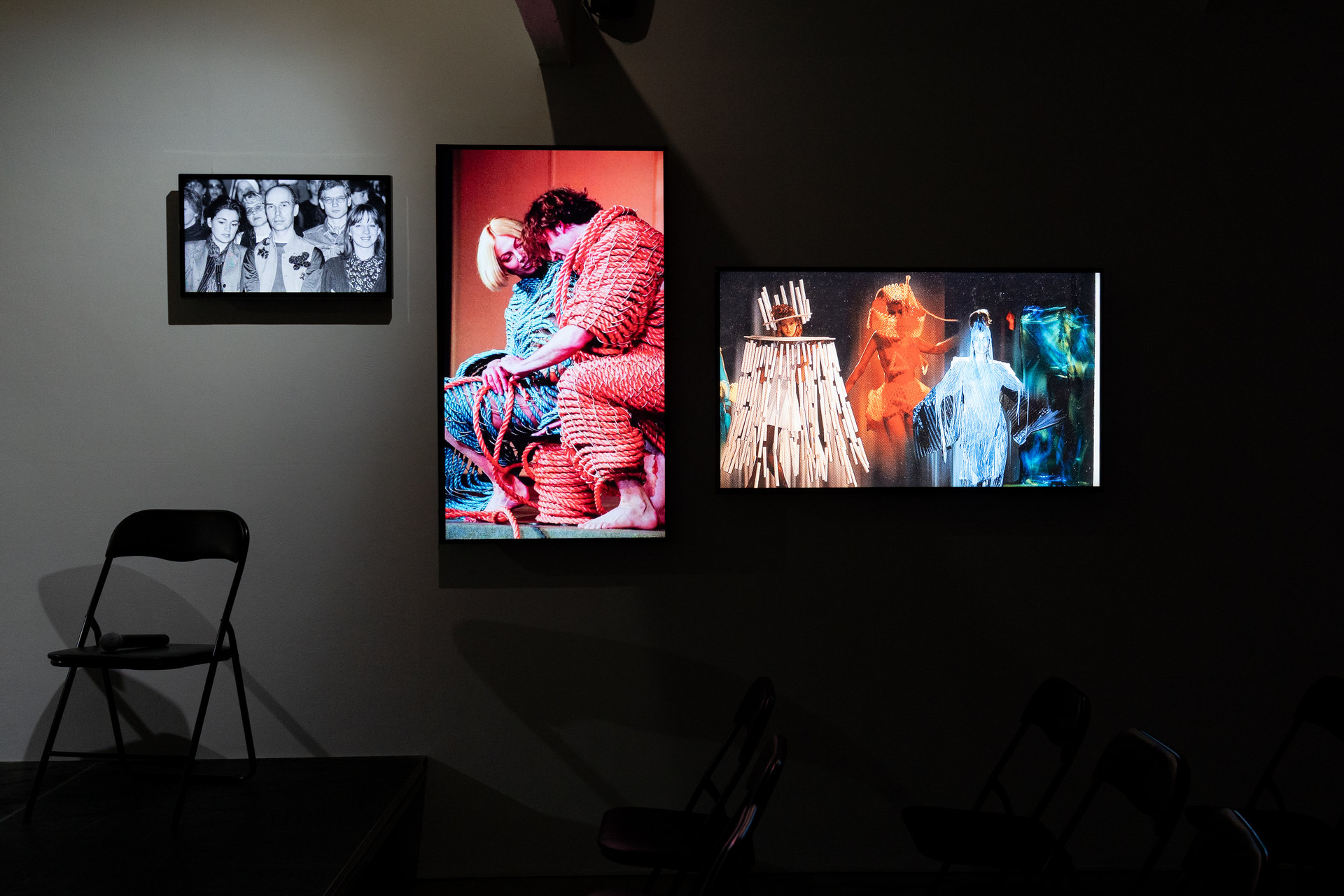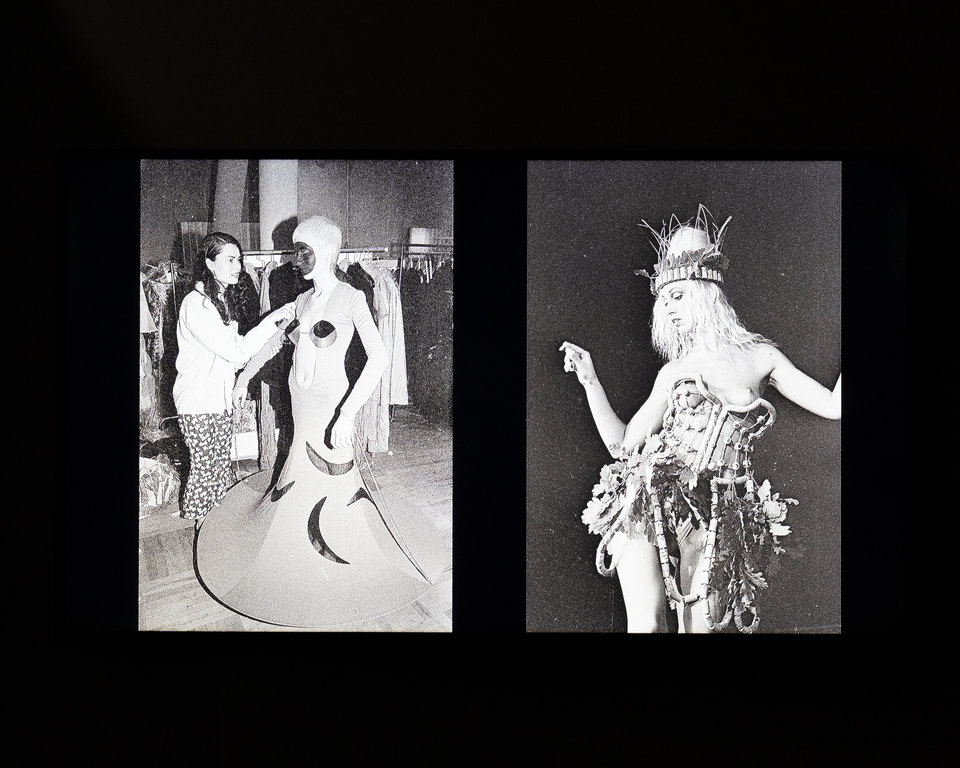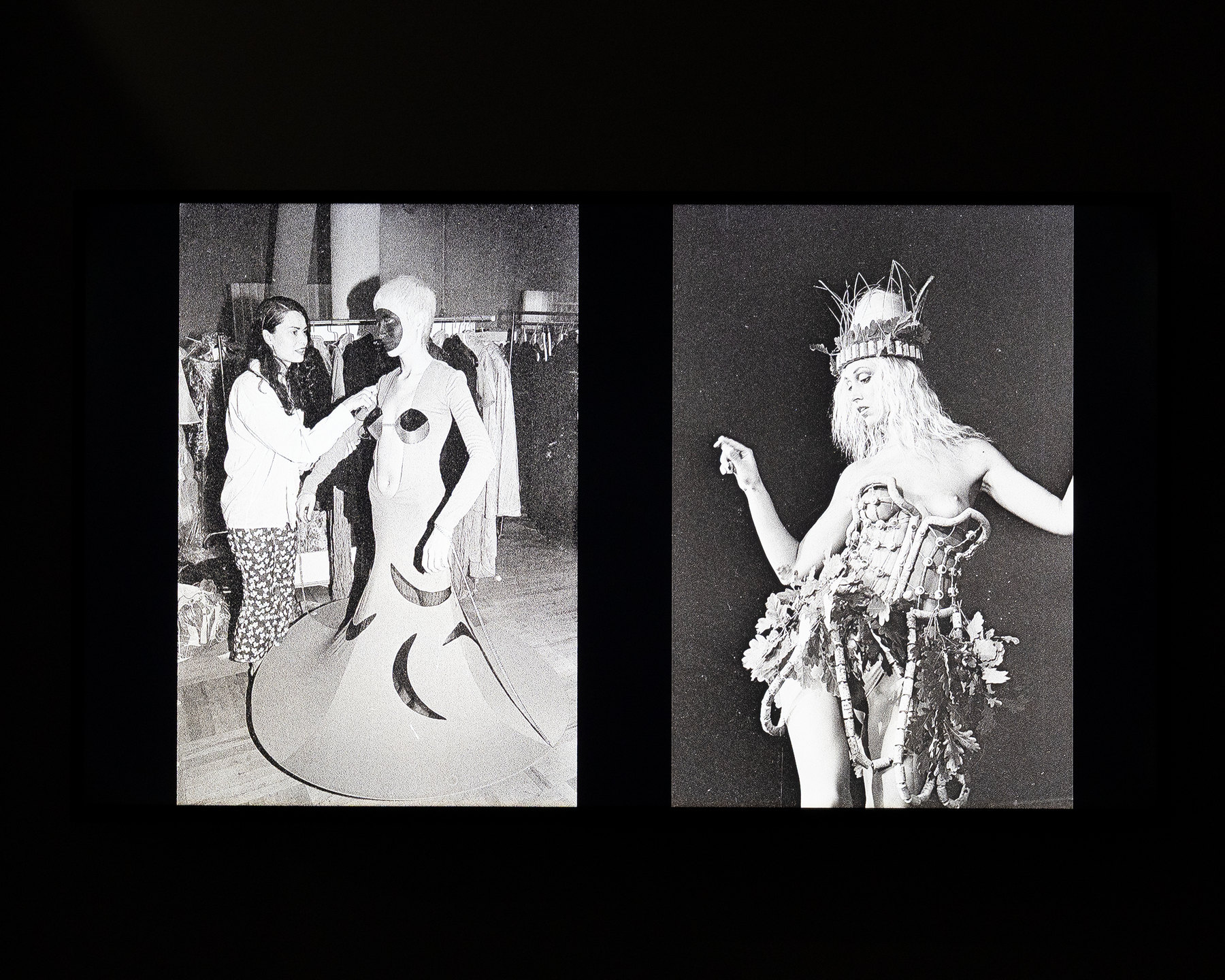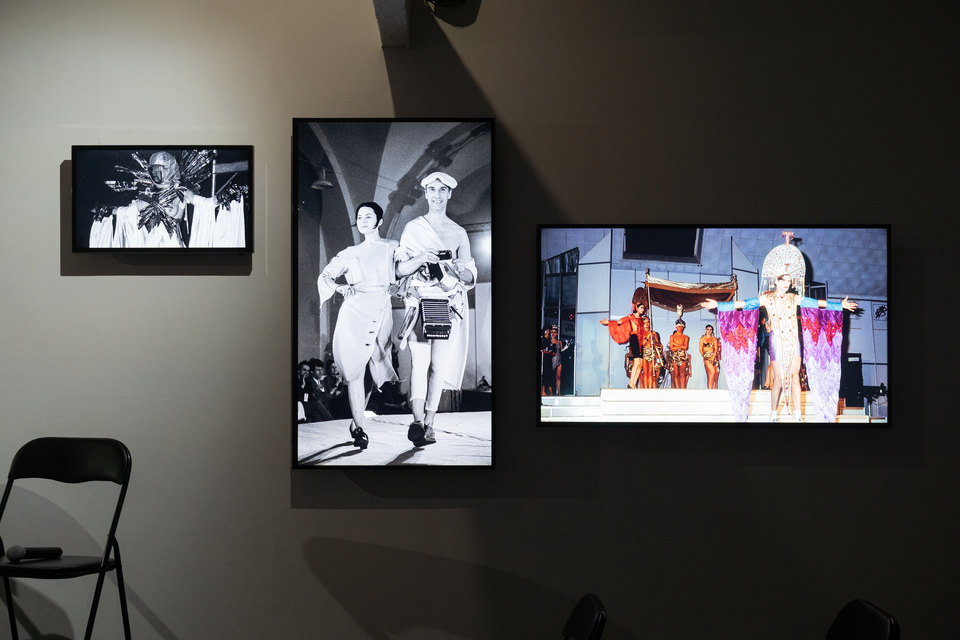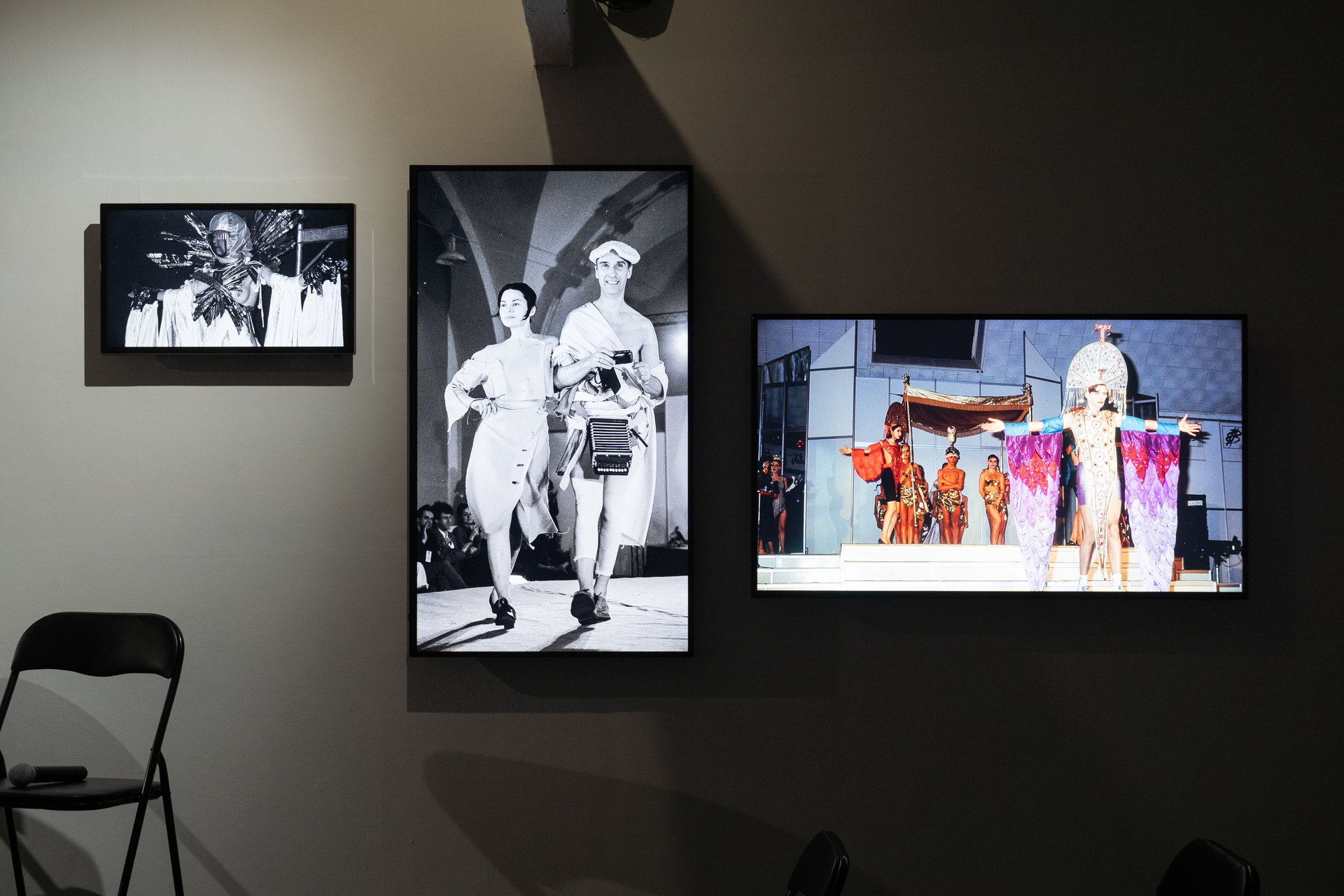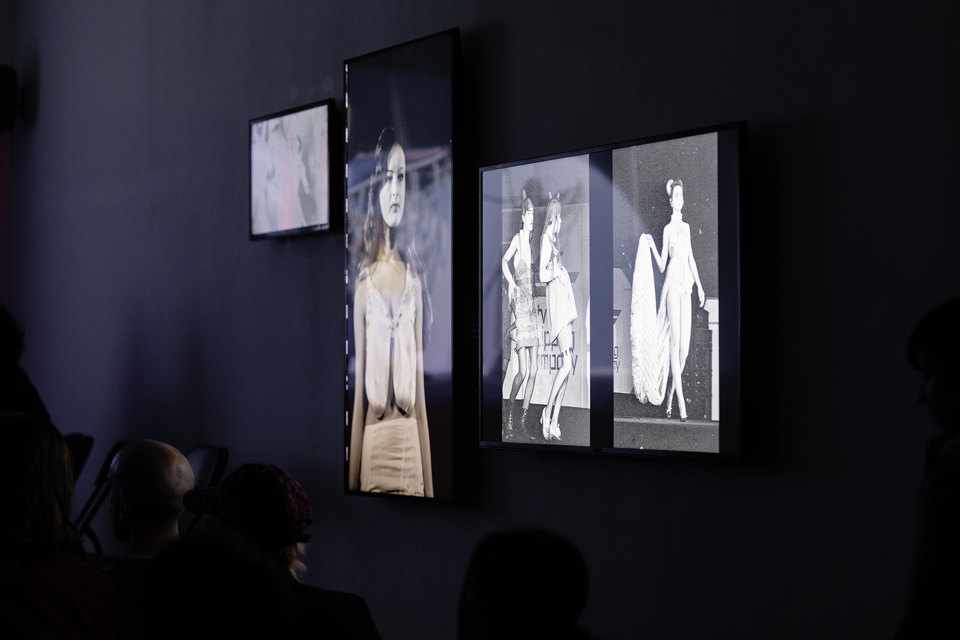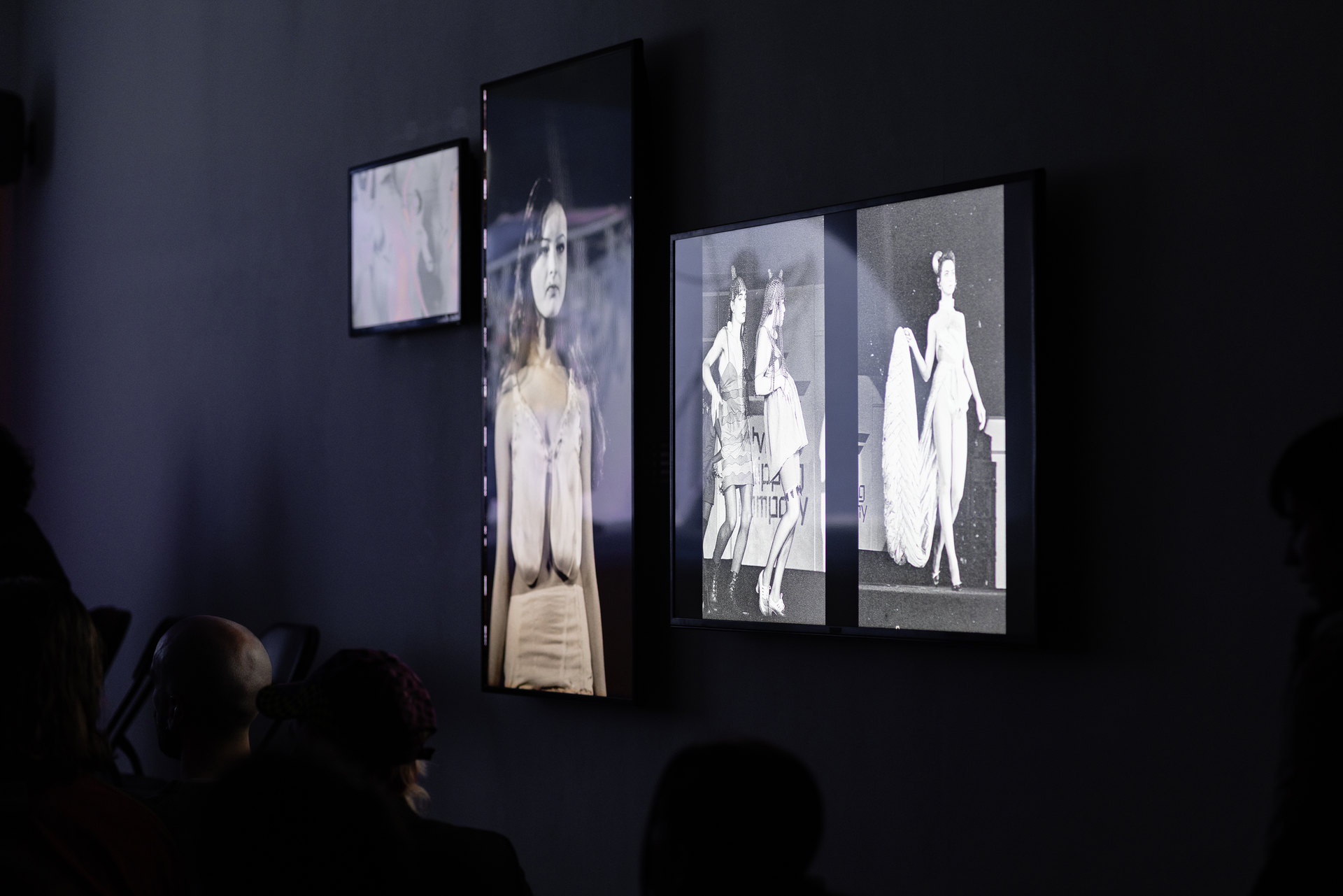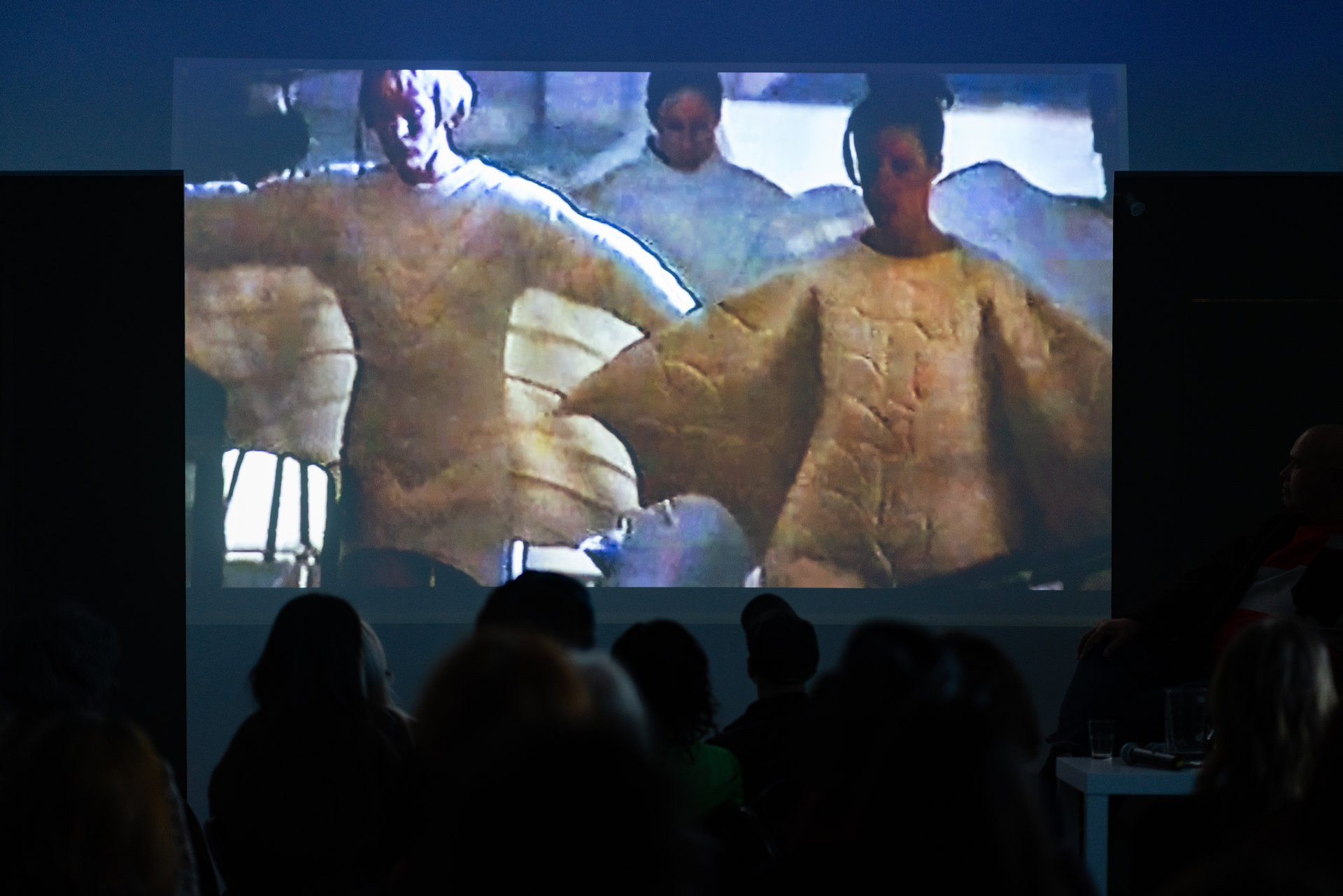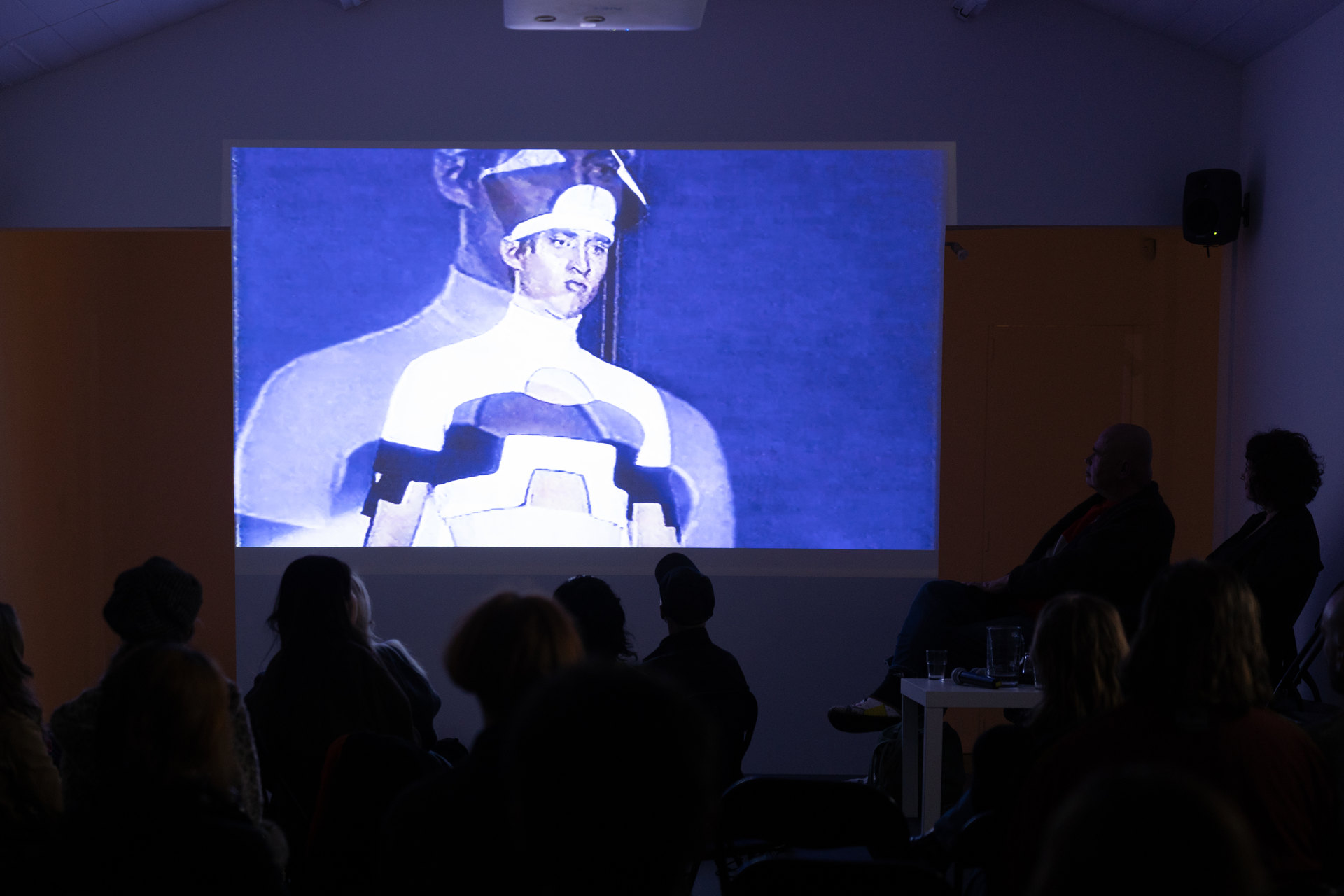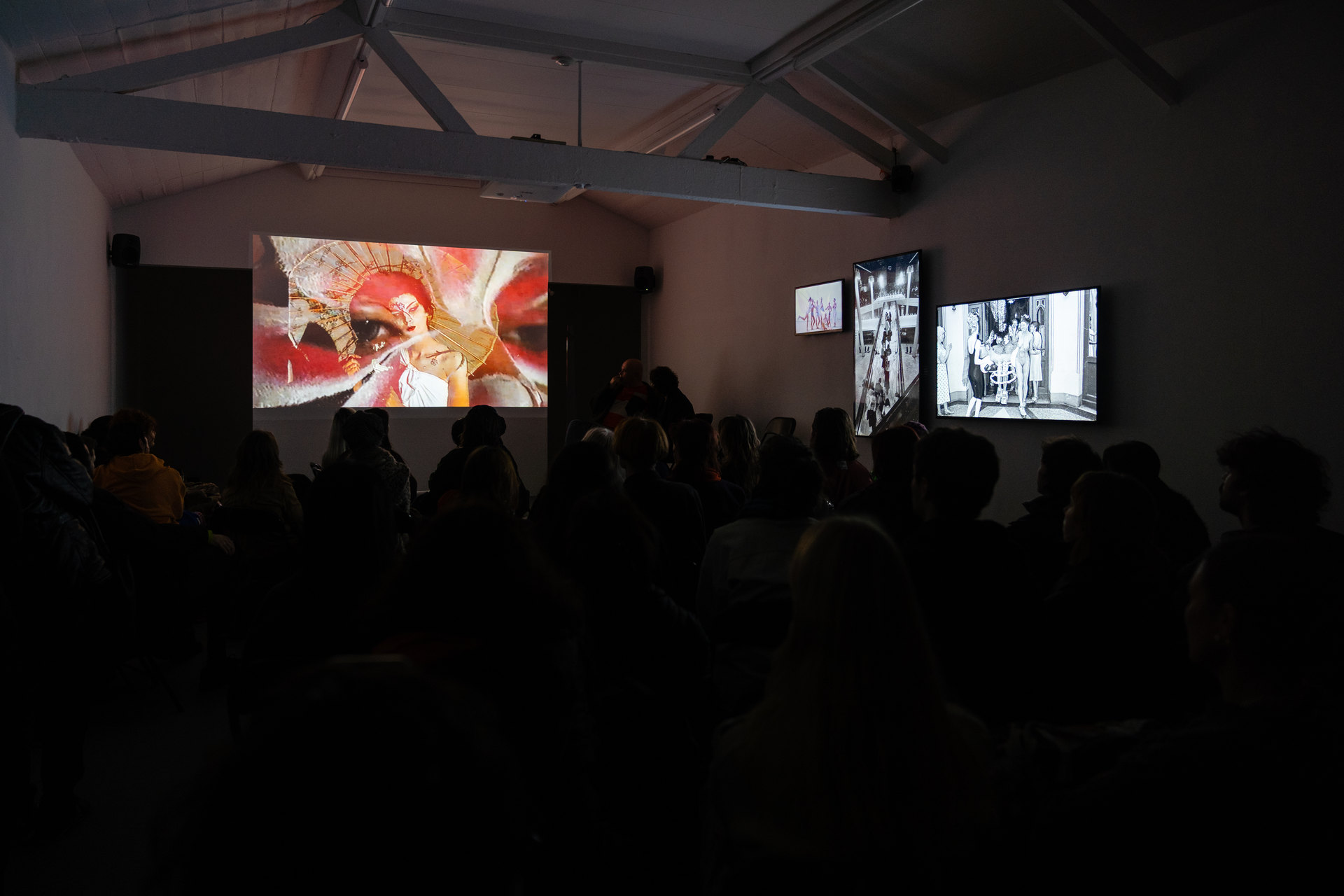Untamed Assemblies 1
Screening and Panel Discussion
13.03.2025
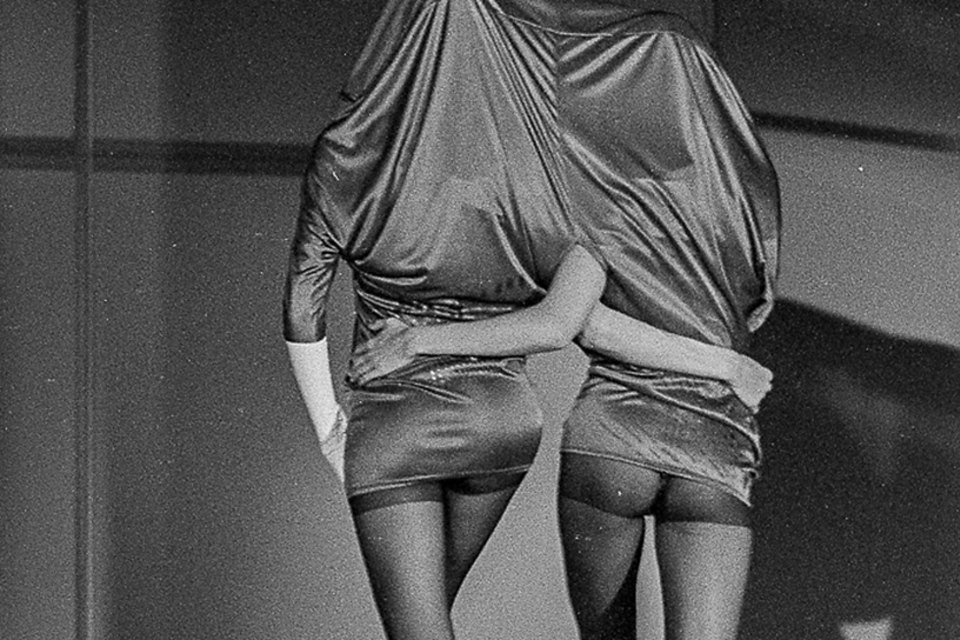
6.30pm Thursday 13th March
Discussion, Screening and Archival Materials
Join us on Thursday, 13th March, at 6.30pm for the launch of Untamed Assemblies, a new research and public programme at Cell Project Space, exploring the under-recognised intersections between experimental fashion and visual art in the 1990s, with a focus on cultural exchanges between the UK and ‘Eastern’ Europe.
This inaugural event will bring together the initiator of Untamed Fashion Assemblies (UFA), Bruno Birmanis, alongside original participants Phyllis Cohen and Guus Beumer. UFA was an annual carnivalesque festival that took place in Riga, Latvia, between 1990 and 1999, fusing alternative fashion, drag, and visual art. The evening will feature a screening, a panel discussion moderated by Cell’s Curator Adomas Narkevičius, and a presentation of archival materials, offering insights into the Assemblies’ spirit, their reception in both UK and Latvian media, and their broader cultural impact.
Fashion designer Bruno Birmanis will be joined by Guus Beumer, Founding Director (2013–2021) of Het Nieuwe Instituut and Temporary Fashion Museum (2015–2016), Rotterdam, and Phyllis Cohen, experimental make-up artist, illustrator, and Founder of Face Lace, London. Together, they will revisit the atmosphere and legacy of the Assemblies, reflecting on their non-commercial ethos and the intersections of experimental fashion, visual art, drag performance, anti-Soviet sentiment, and partying – erupting during rather than after the events' themselves.
Untamed Assemblies continues Cell’s engagement with experimental artistic and cultural practices emerging from ‘Eastern’ Europe, following the Queer Anti-Colonial Solidarity Fundraiser Performance Night (2023) and CEED Feminisms programmes (2023–24). It also reflects on a moment of sociopolitical transition in the early 1990s, shaped by both euphoria and economic collapse in newly independent, decolonised countries such as Latvia, Lithuania, Estonia, and Georgia. Against this backdrop, the Untamed Fashion Assemblies in Riga and, slightly later, the Avantgarde Fashion Assemblies in Tbilisi, emerged as singular interdisciplinary festivals incorporating alternative fashion, visual art, club culture, politics, and drag.
For a brief moment in the 1990s, radical young fashion in the region captured the international imagination – particularly that of the United Kingdom. Iconic sculptor and jeweller Andrew Logan brought his performances to Riga and Tbilisi, accompanied by BBC film crews. Designers Zandra Rhodes and Red or Dead’s Wayne Hemingway were among other notable participants, and in 1994, Paco Rabanne served as a jury member for the competition. A list of Central Saint Martins students in attendance suggests that Alexander McQueen may have witnessed the Assemblies firsthand. Pioneering feminist artist Eglė Rakauskaitė, who represented Lithuania at the 1999 Venice Biennale, presented wearable objects, while curator Raimundas Malašauskas, whose poetic, ephemeral methods informed what is now known as New Institutionalism, modelled for designer Sandra Straukaitė at Vilnius' UFA-inspired Fashion Infection. Meanwhile, in Georgia, the Assemblies helped shape the ethos and aesthetics of ‘anti-fashion’ – most recently brought to the global stage by Georgian designer Demna Gvasalia, artistic director of Balenciaga. The story of Untamed Fashion Assemblies – its impact on contemporary art, social change, and queer discourse in the region, as well as its latent influence on non-commercial and experimental fashion internationally – has yet to be fully explored.
Call for Archival Materials
Untamed Assemblies 1 also marks the start of year-long research into the Untamed Fashion Assemblies (Riga), Avantgarde Fashion Assemblies (Tbilisi), and broader cultural exchanges between 'Eastern' Europe and the United Kingdom at the intersection of art and fashion in the 1990s. If you participated in or contributed to these events, or hold archival material, please do not hesitate to get in touch: info [at] cellprojects [dot] org.
Bruno Birmanis is a designer whose work spans alternative fashion, wearable art, environmental and interior design. He is the founder and organiser of the experimental festival Untamed Fashion Assemblies (1990-1999) and has held the position of director for Vilnius Fashion Week and Moscow Fashion Week. Birmanis has also contributed to notable exhibitions and events such as ‘We Don’t Do This’, MO Museum, Vilnius; ’13 Women I (Still) Haven’t Married’, Latvian National Museum of Art, Rīga; ‘Ballet. Beyond.’, Putti Gallery and Riga Central Station, Riga. Additionally, he co-created ‘The Post-Banalism Ball’ in 1988, the first alternative fashion performance in the former USSR.
Guus Beumer was the Founding Director of Het Nieuwe Instituut (2013–2021) in Rotterdam, where he established the Temporary Fashion Museum (2015–2016). Previously, he directed Marres, Centre for Contemporary Culture, and Bureau Europa in Maastricht. He also led the Netherlands Architecture Institute (NAI). In the 1990s, Beumer worked in fashion with Alexander van Slobbe, co-developing the brands Orson + Bodil and SO. He was a founding member of De Zaak Nu, supporting art presentation institutions. He curated the Dutch Pavilion at the Venice Art Biennale (2011) and was Commissioner of the Dutch Pavilion at the Venice Architecture Biennale (2014). A regular contributor to Metropolis M, he recently founded Bruin, an initiative on waste wool.
Phyllis Cohen is a makeup artist, illustrator, and the founder of Face Lace. Her career spans several decades, during which she has collaborated with numerous iconic figures. Throughout the 1980s, she worked with renowned artists such as David Bowie, Annie Lennox, Tina Turner, and Janet Jackson. Her work appeared in prestigious publications like Vogue, Elle, and Vanity Fair. Her notable trompe-l'œil (optical illusion) makeup looks, producing three-dimensional effects on the skin, solidified her status as a pioneer in experimental makeup artistry.
Generously supported by the Cockayne Foundation, with additional support from the Foyle Foundation.

